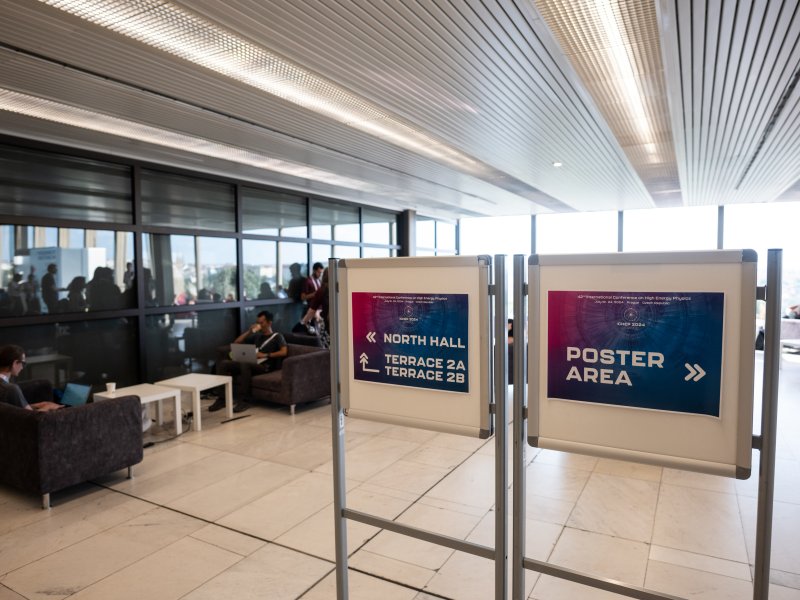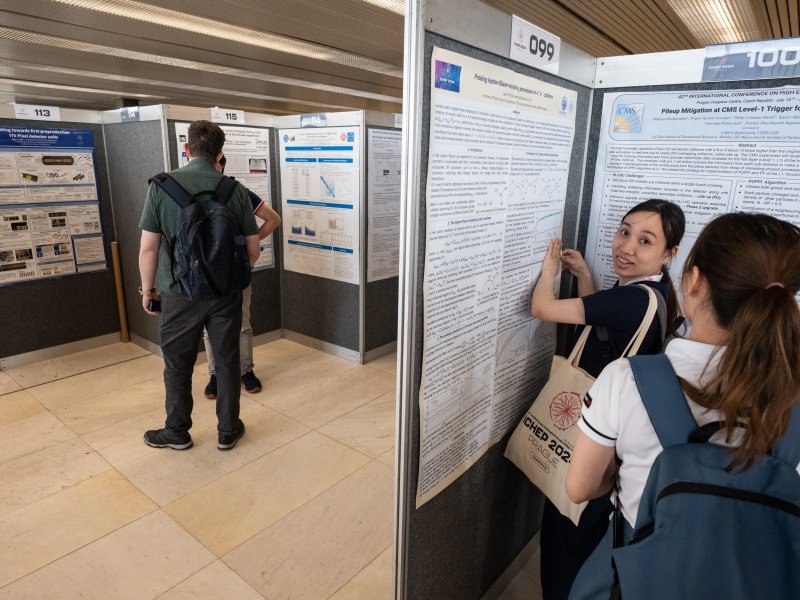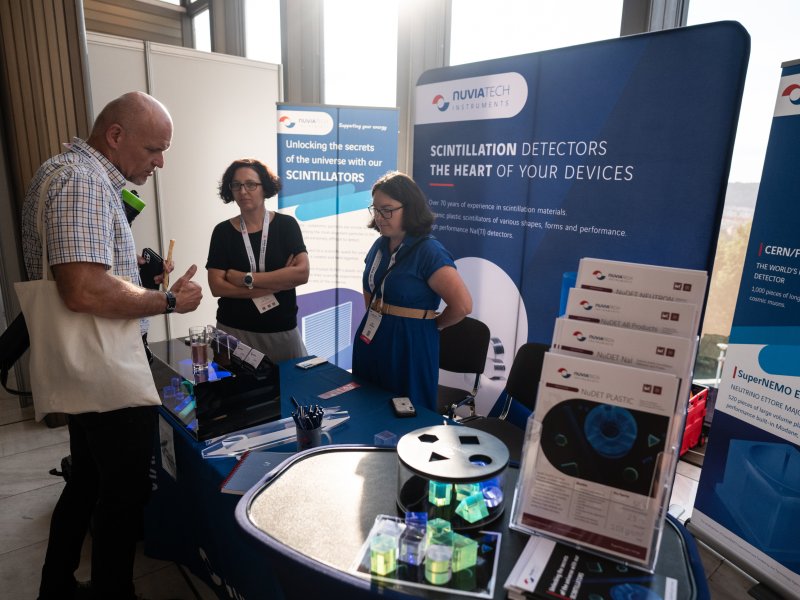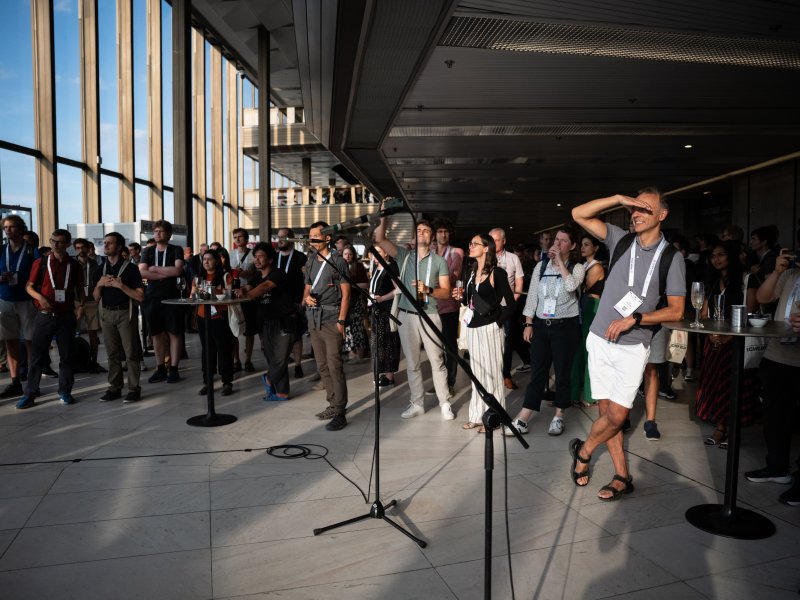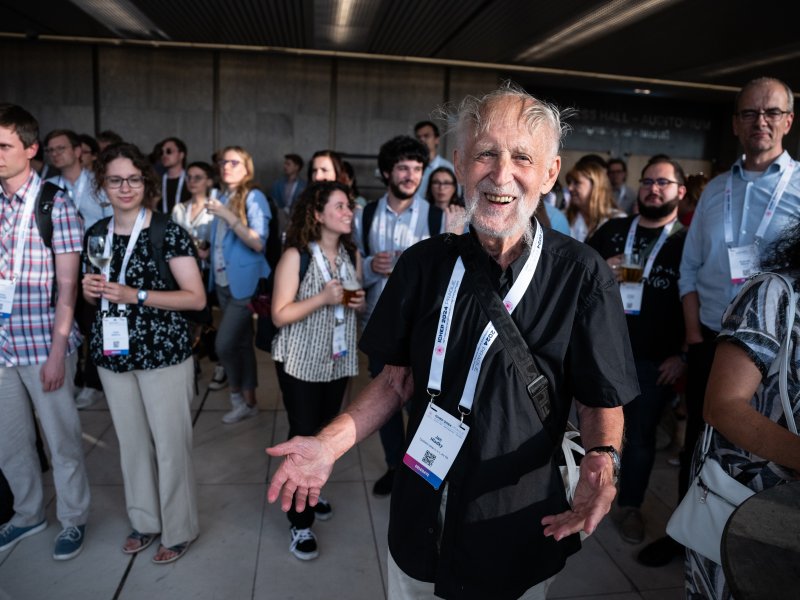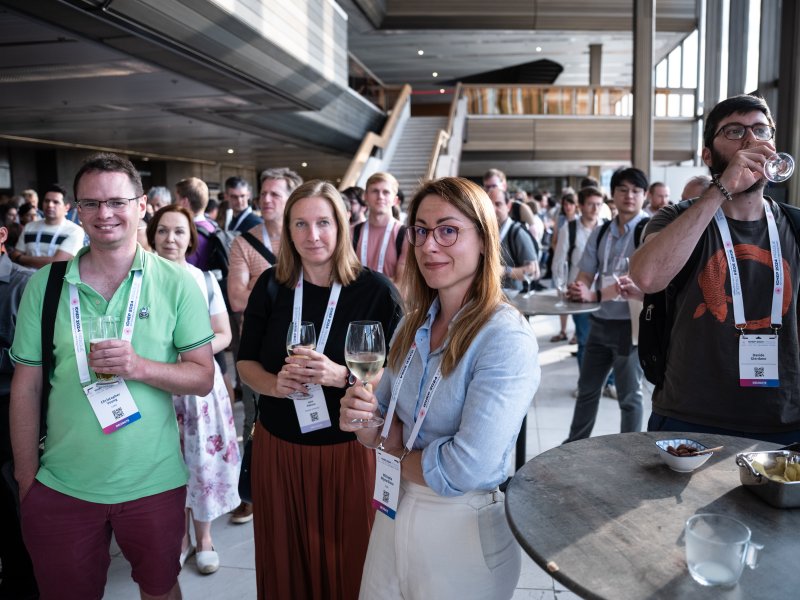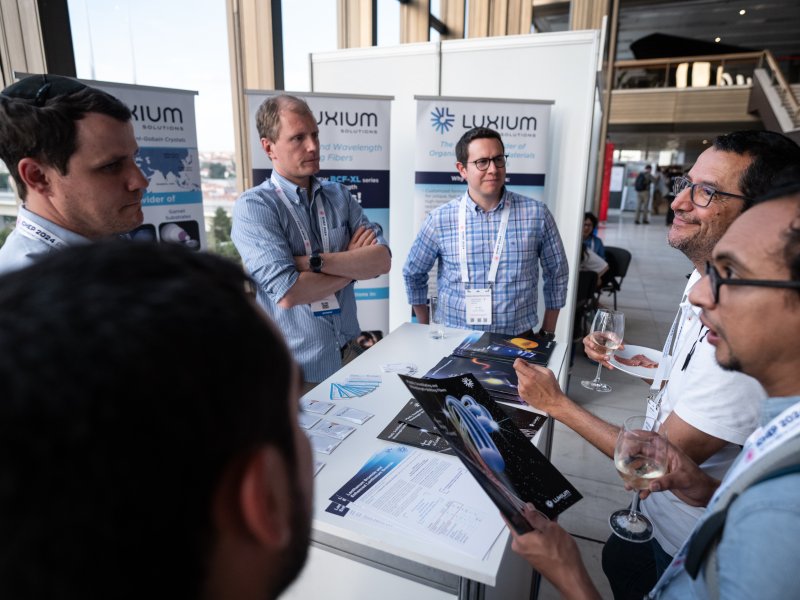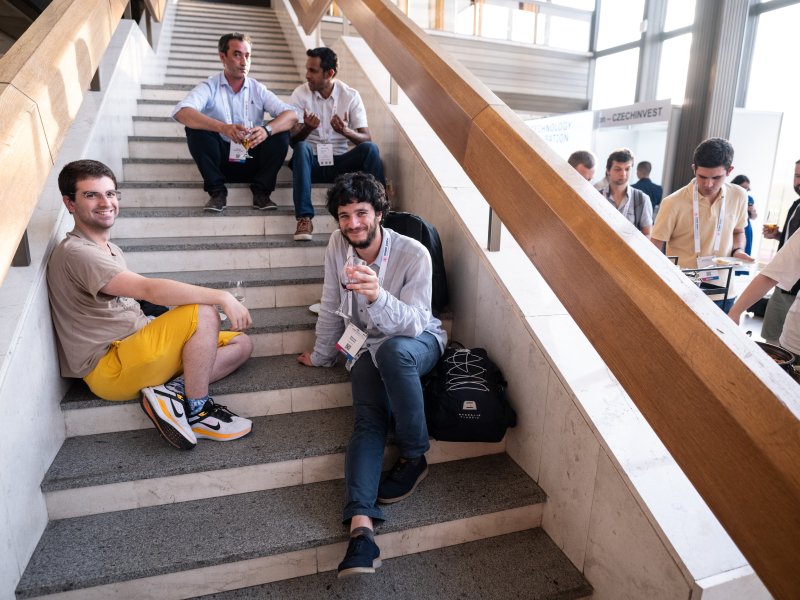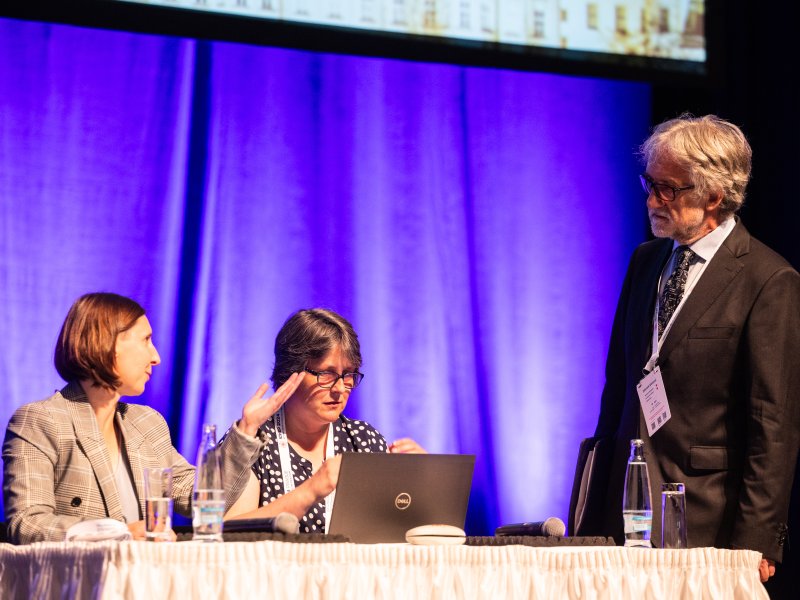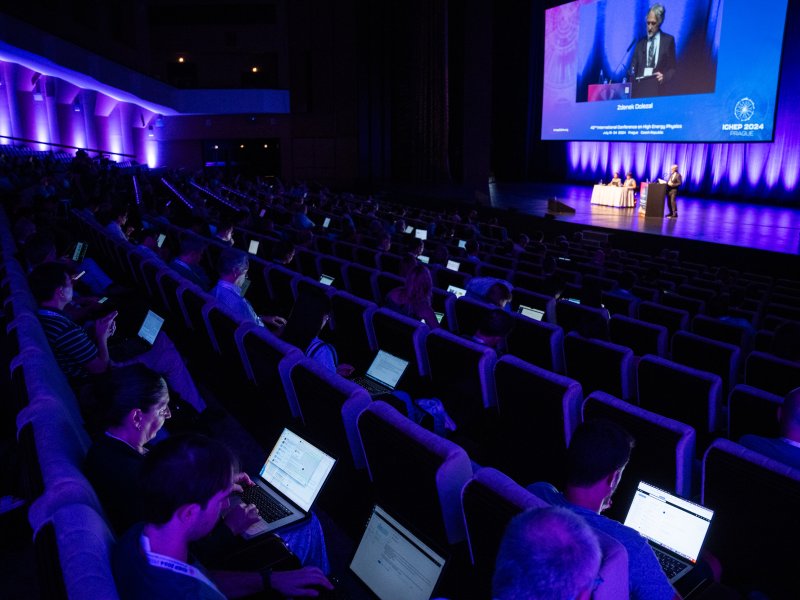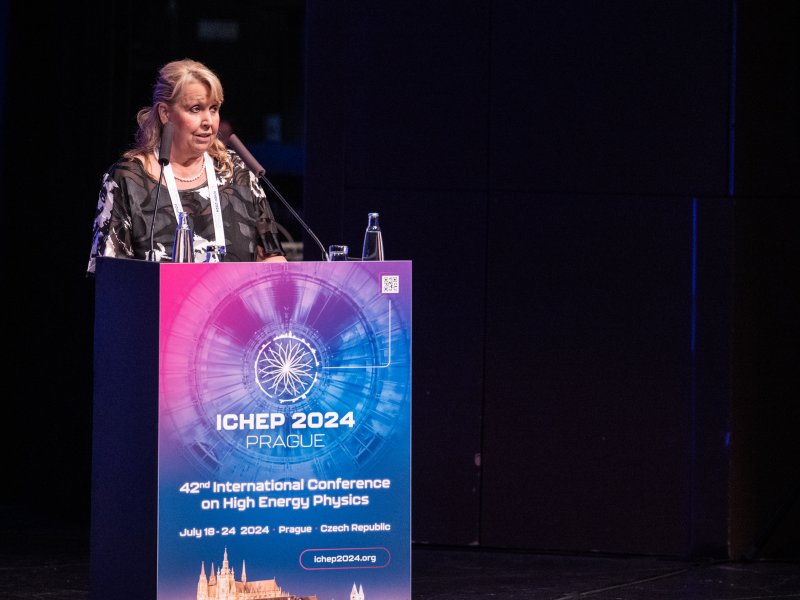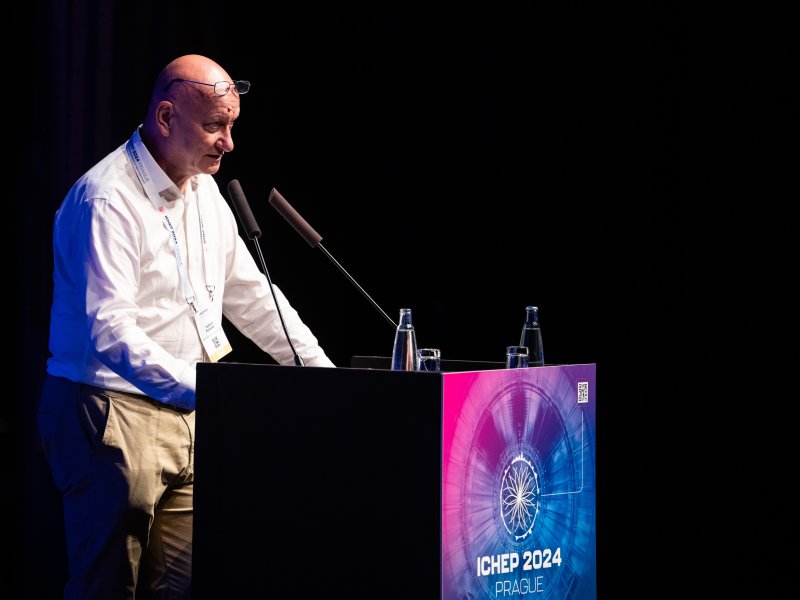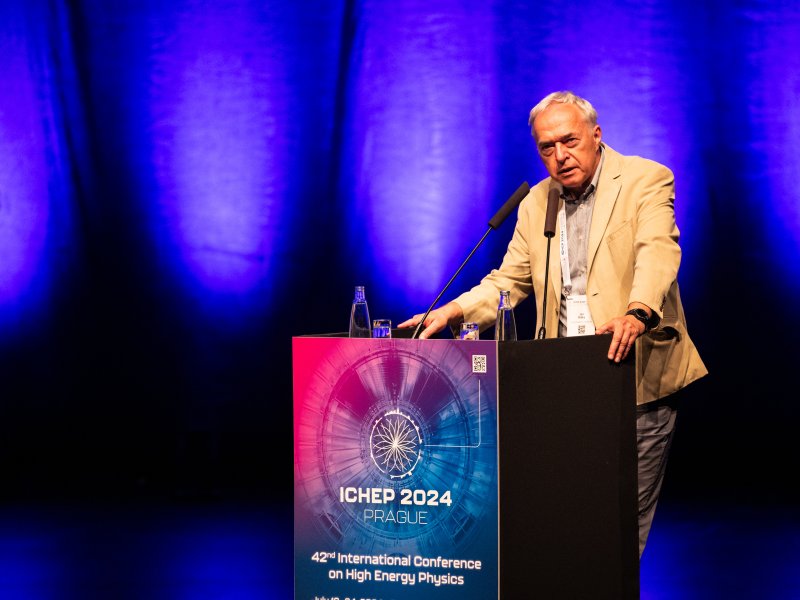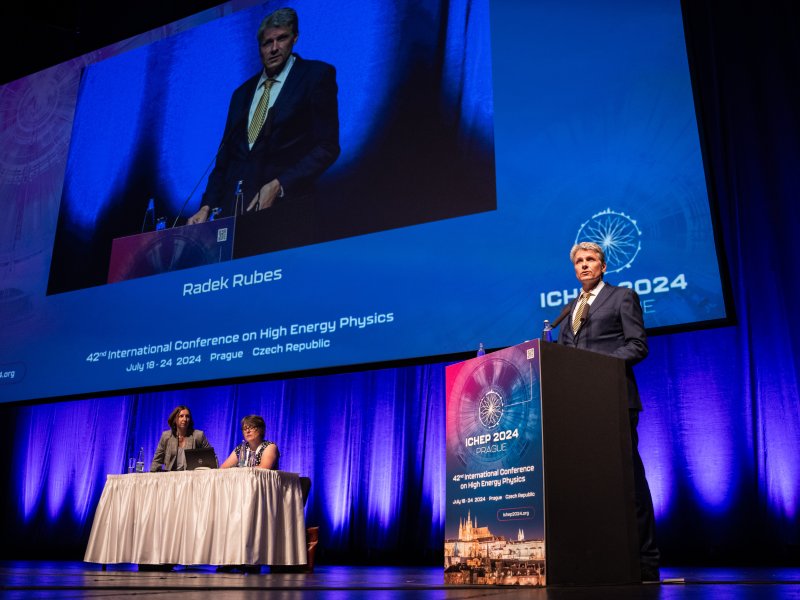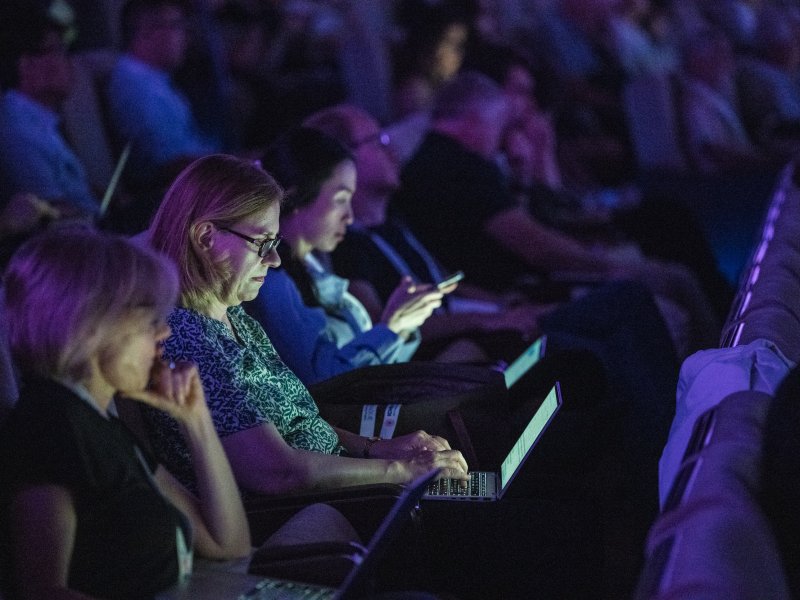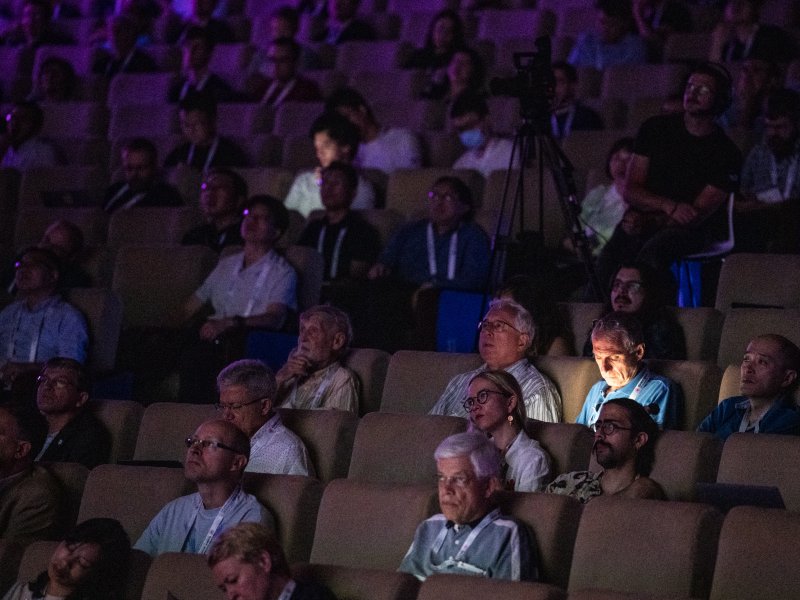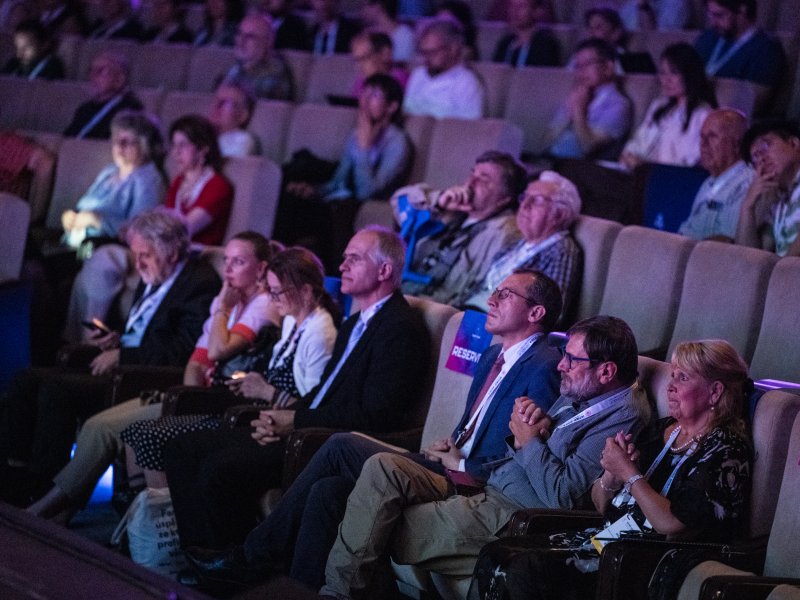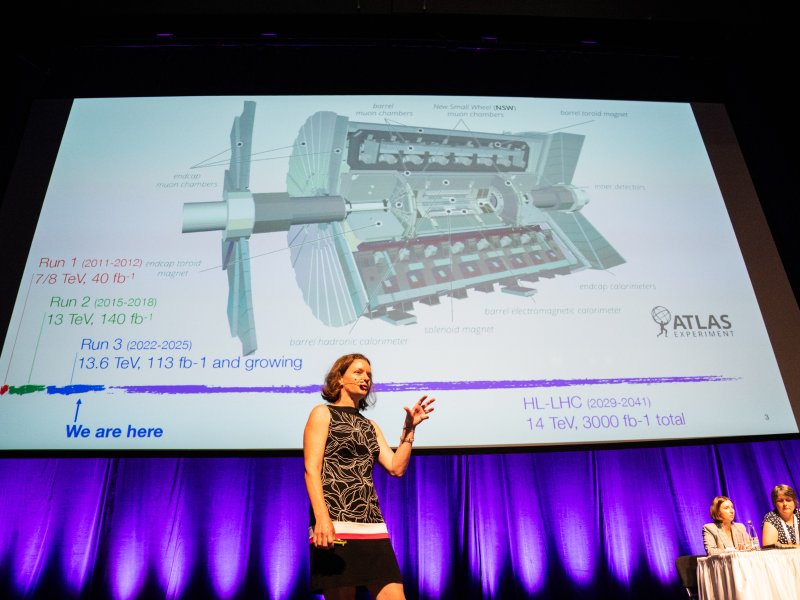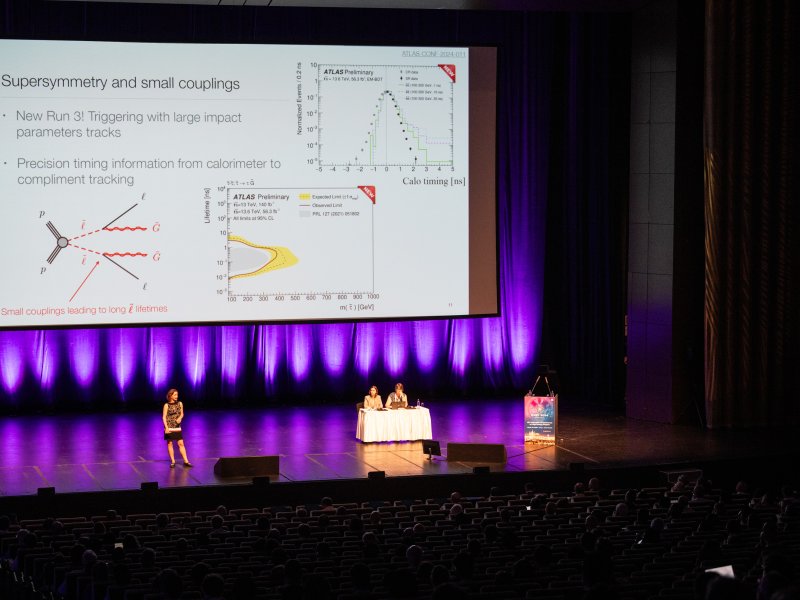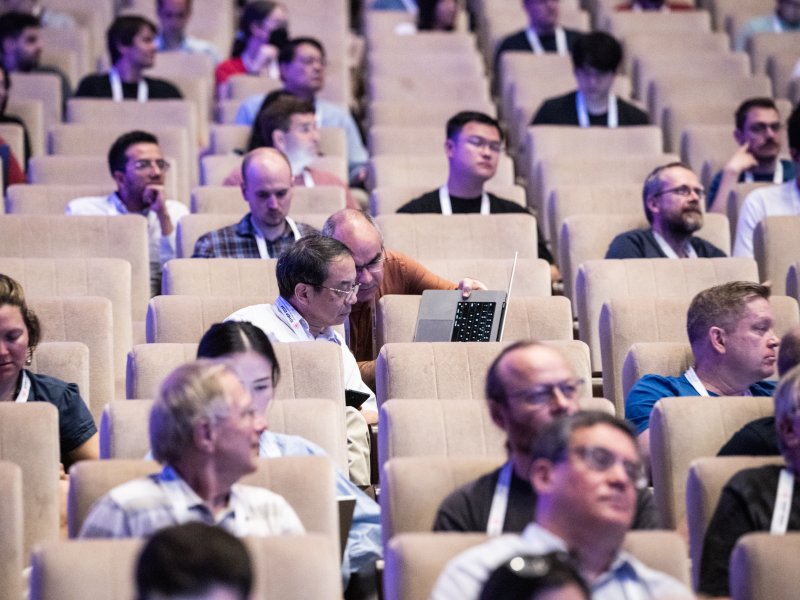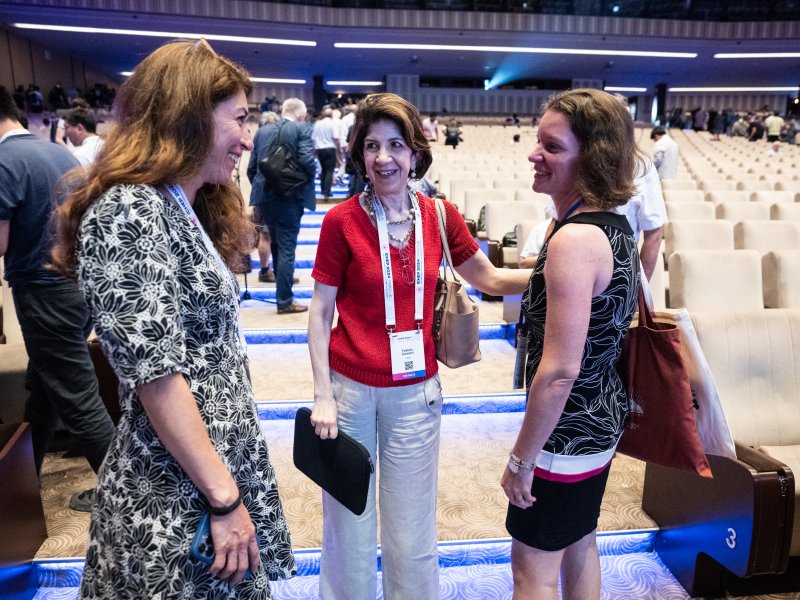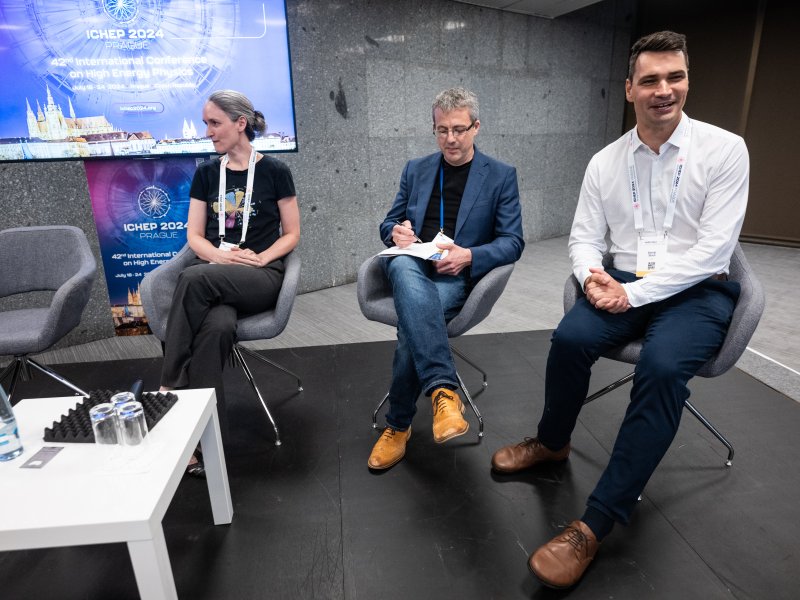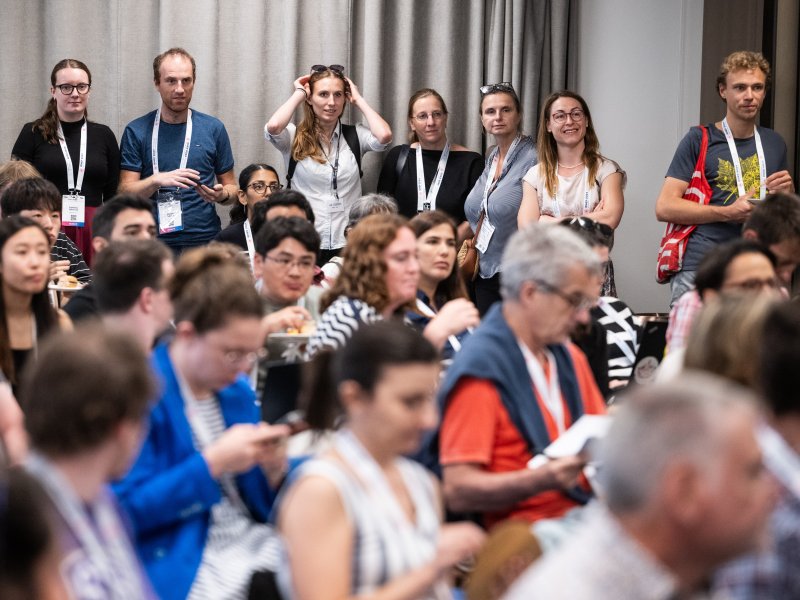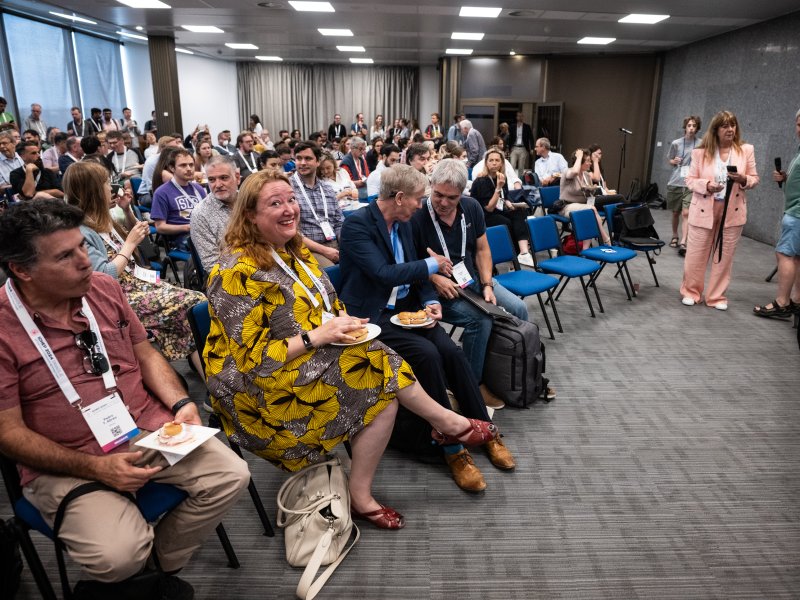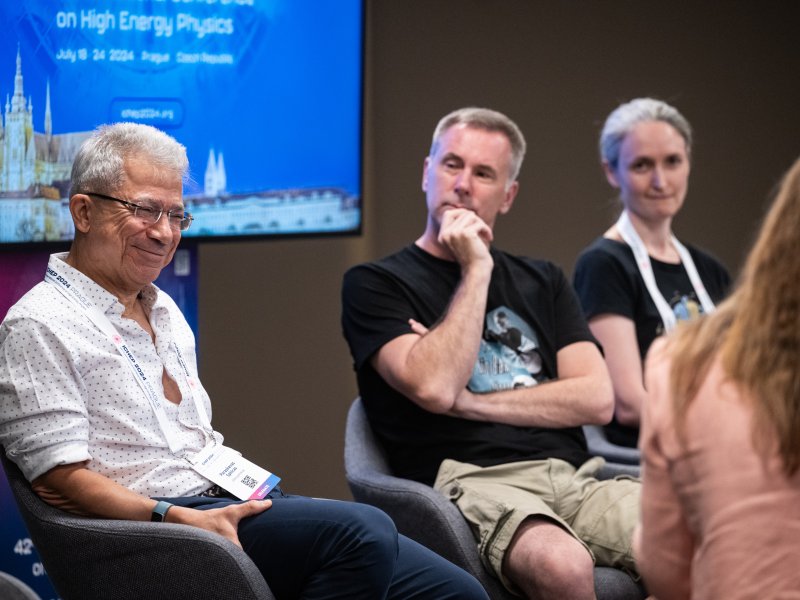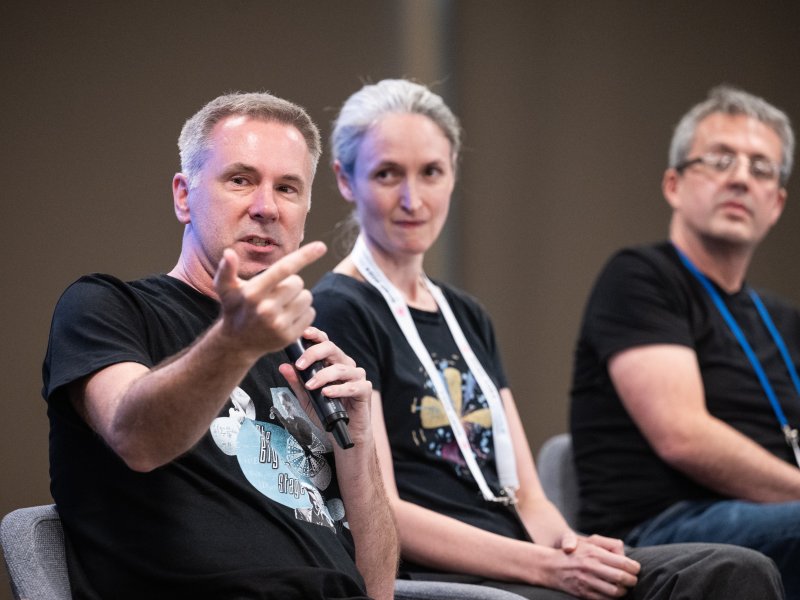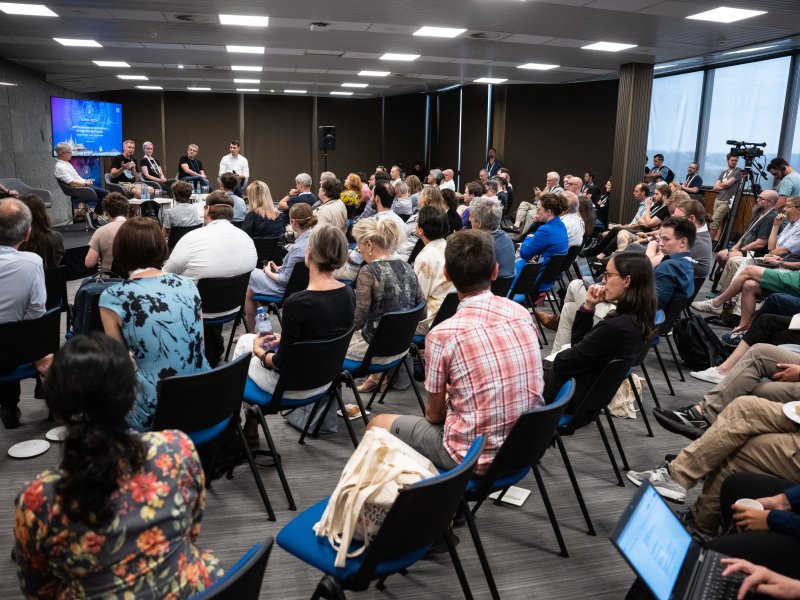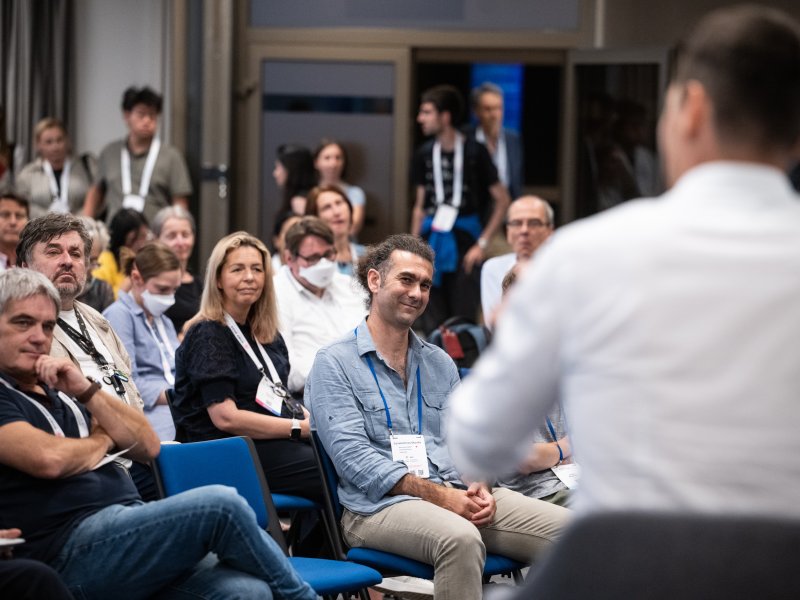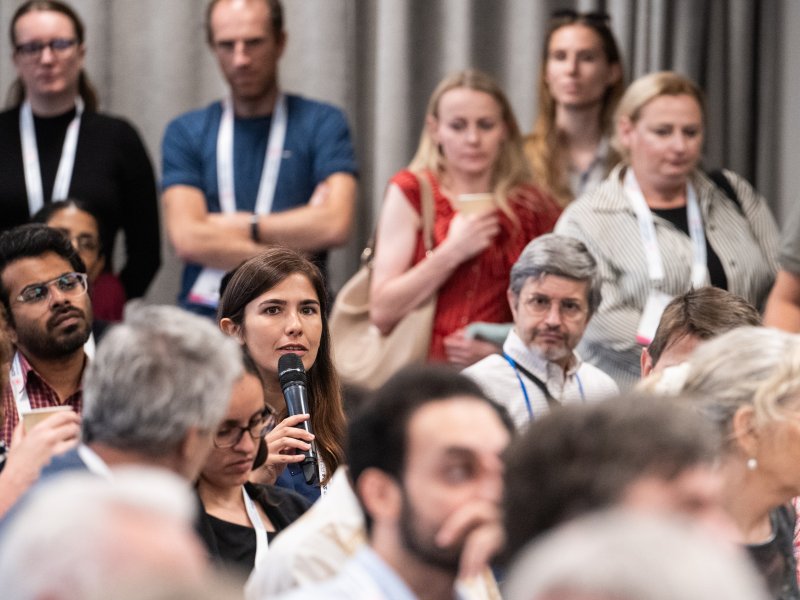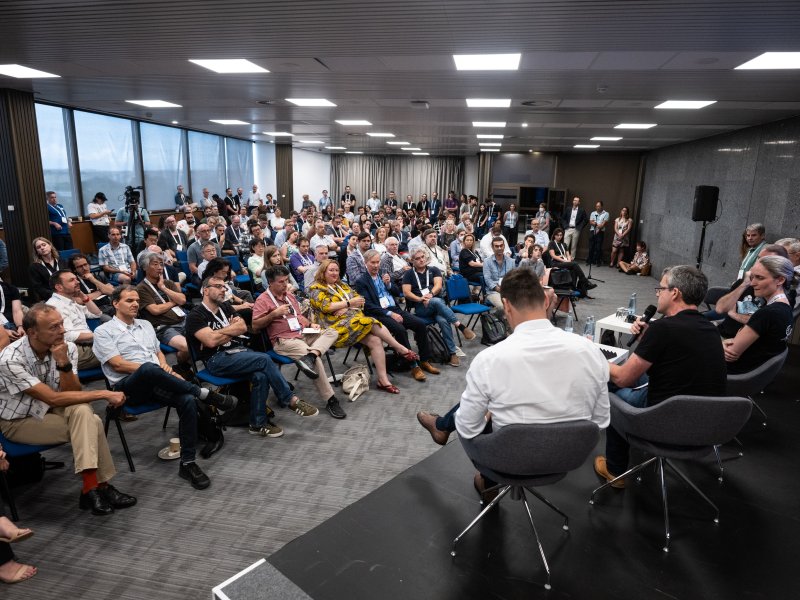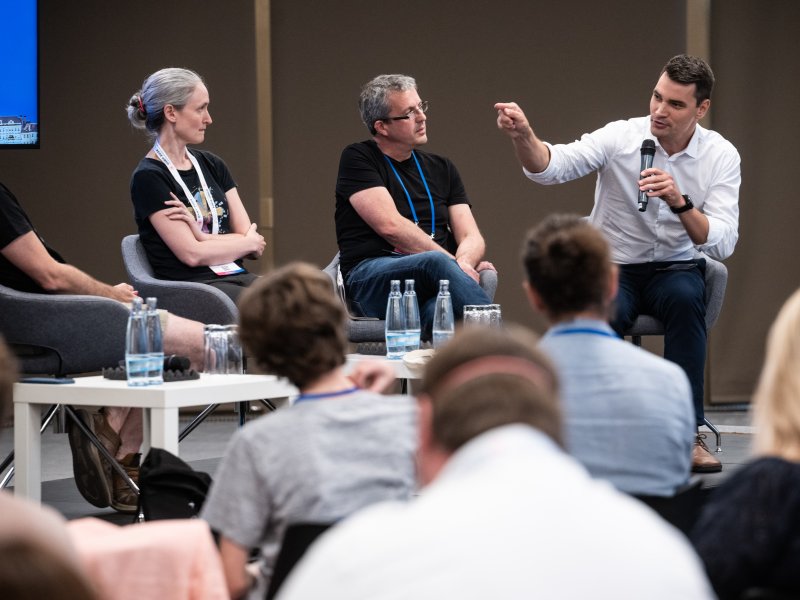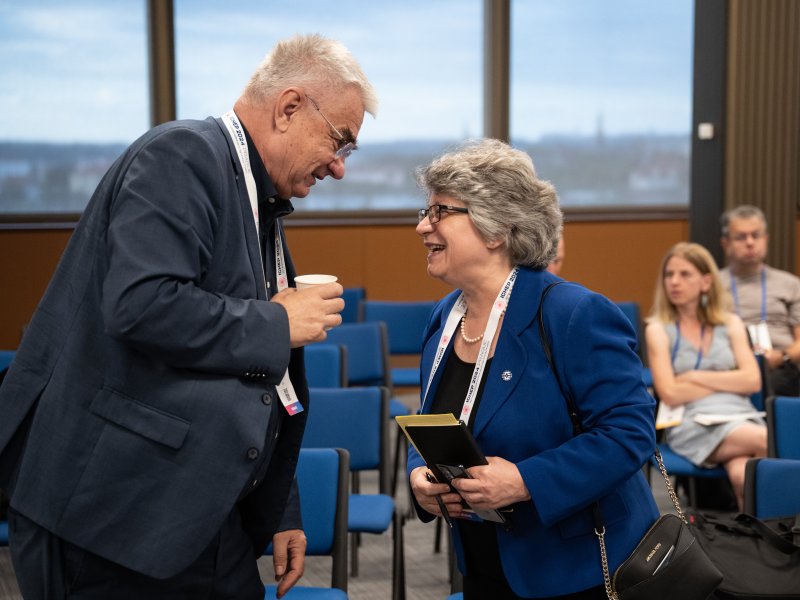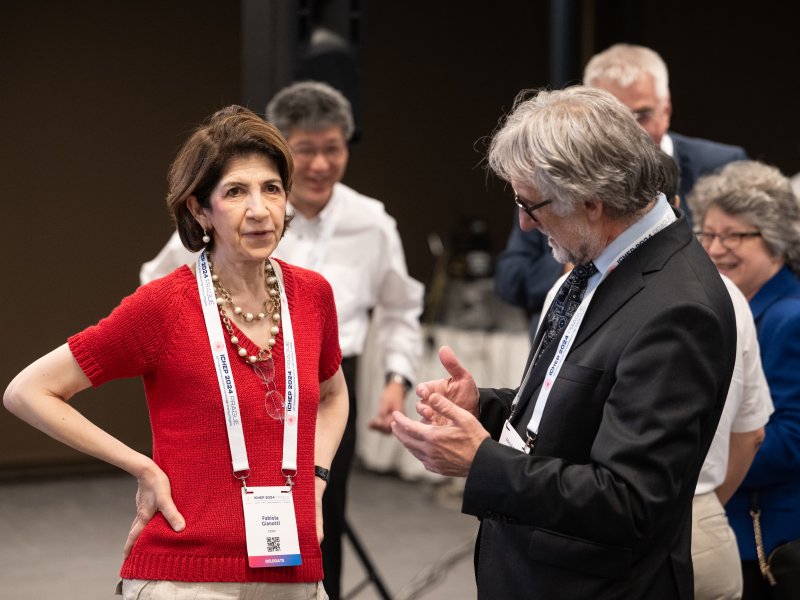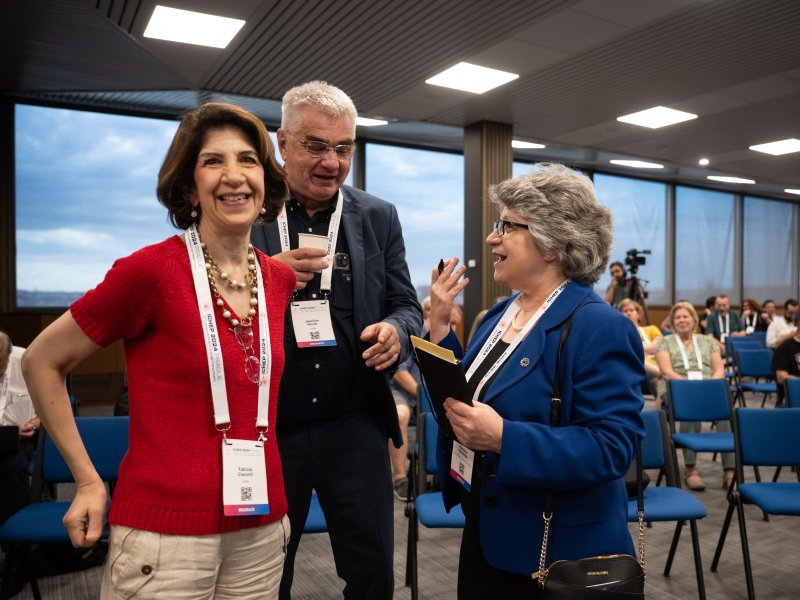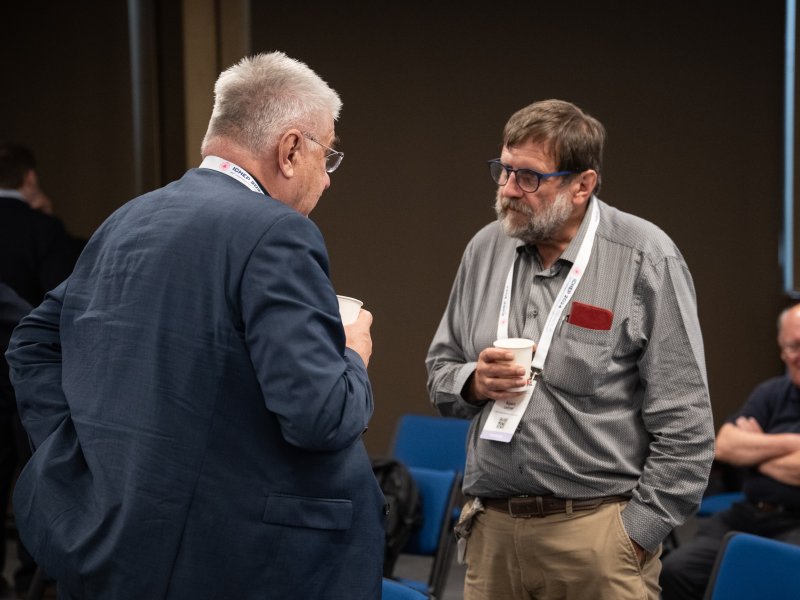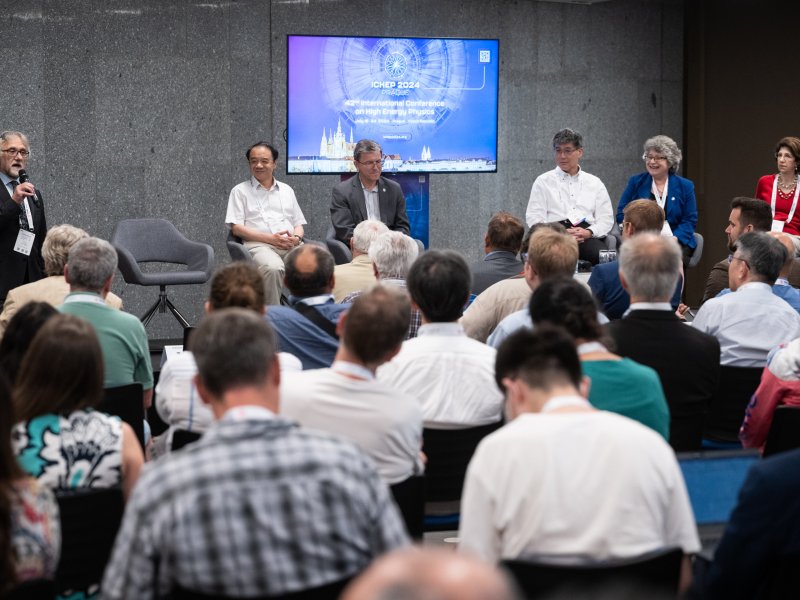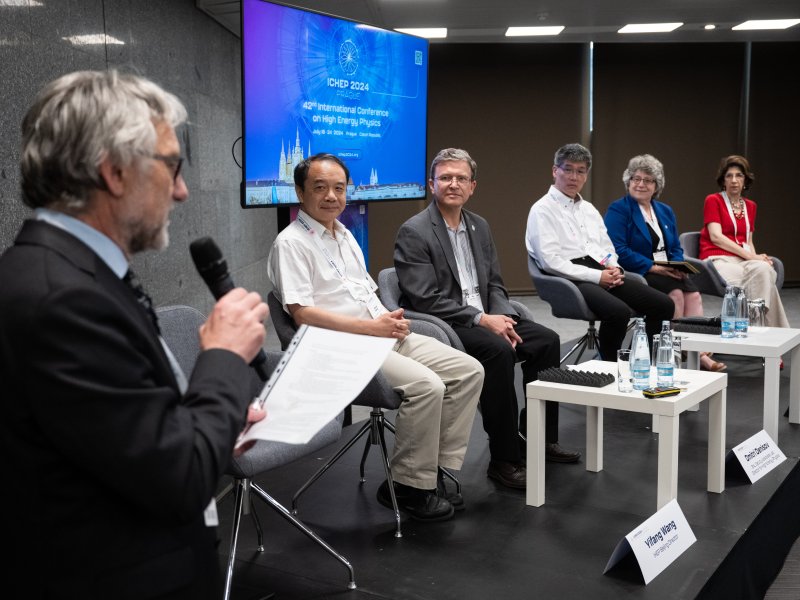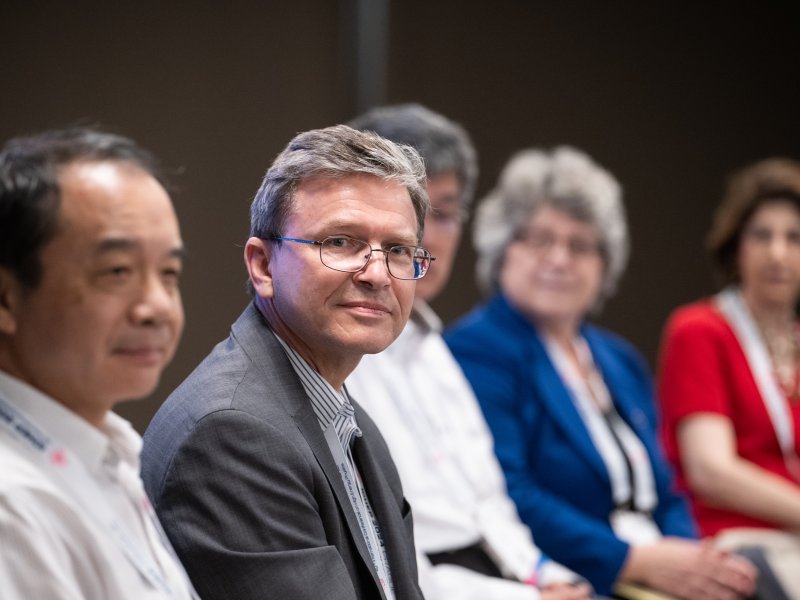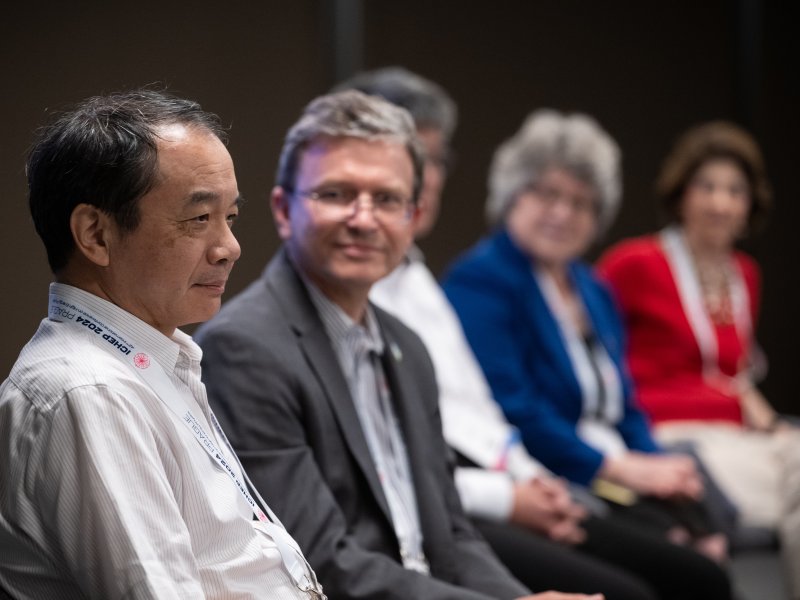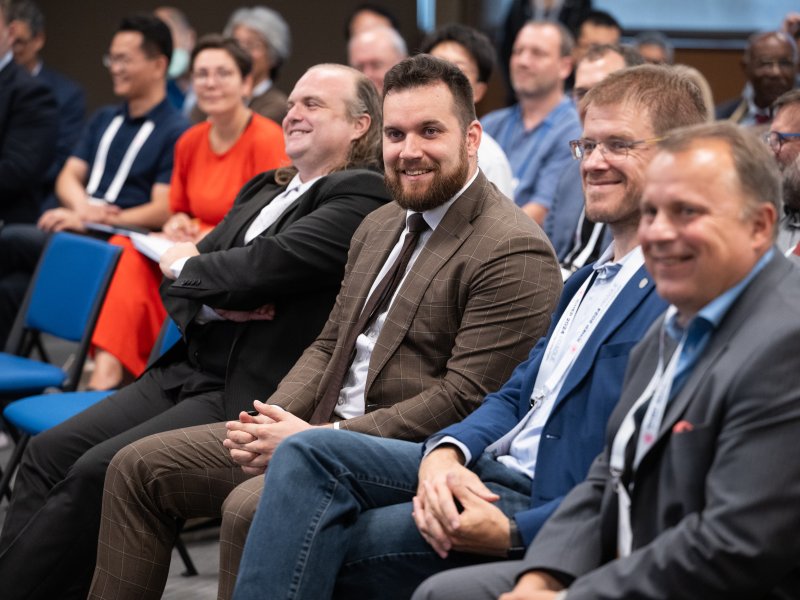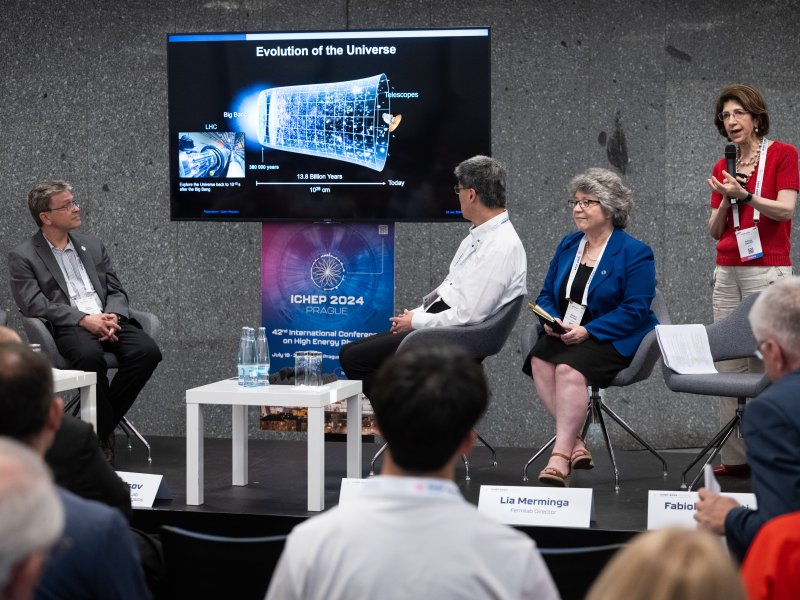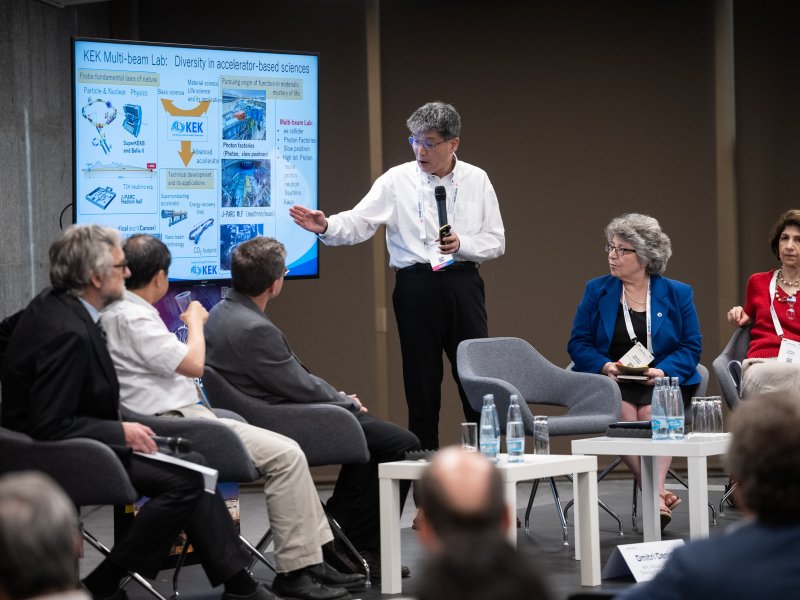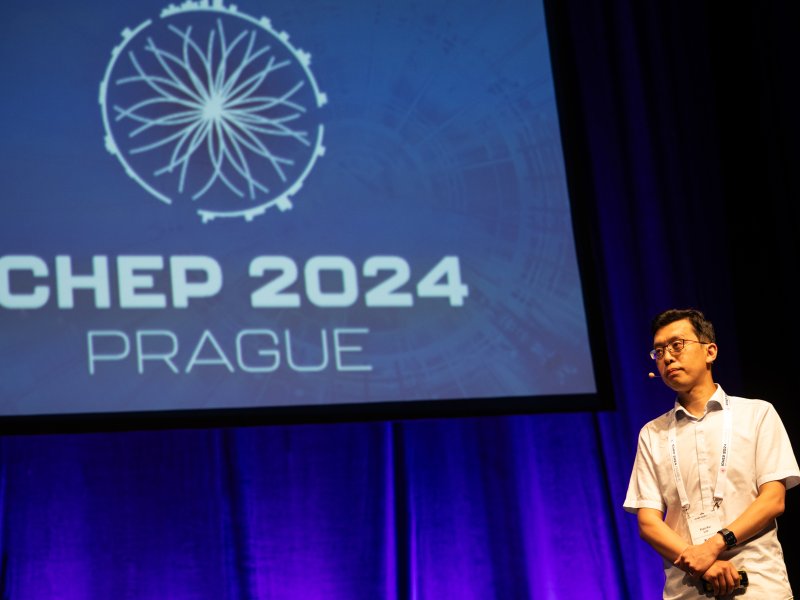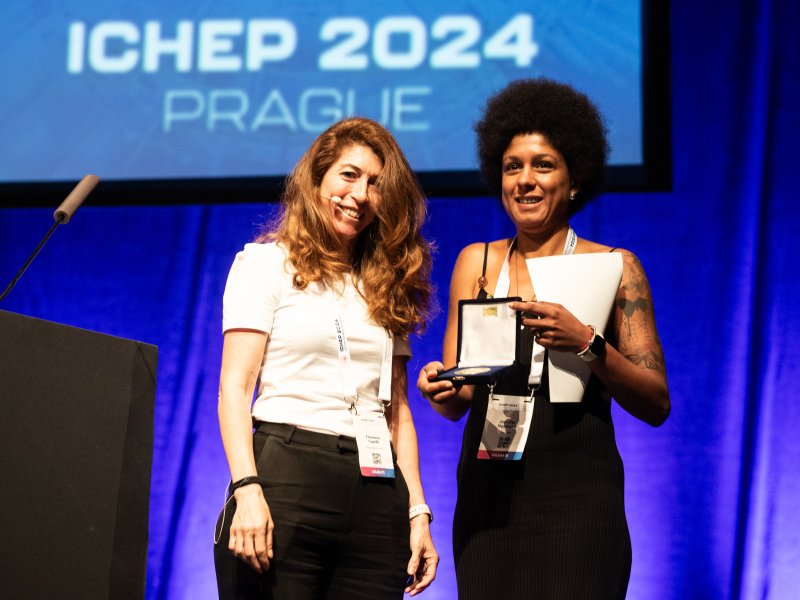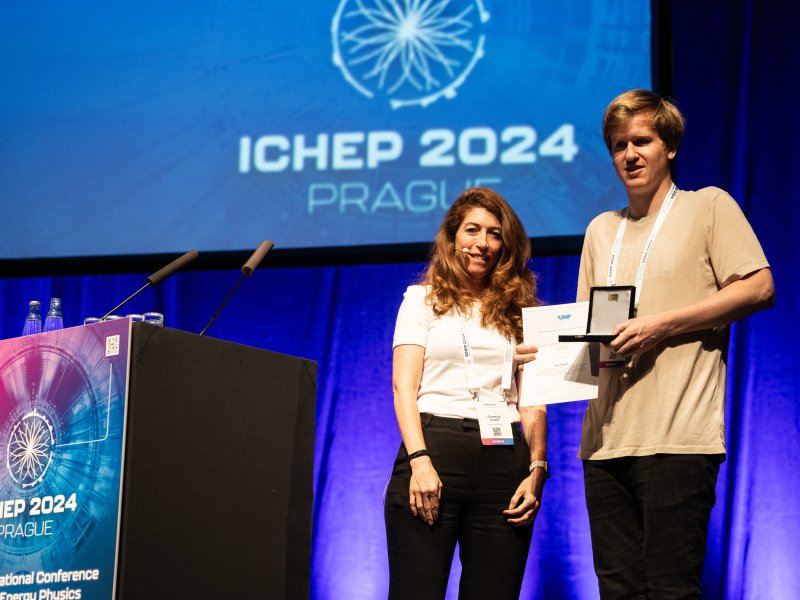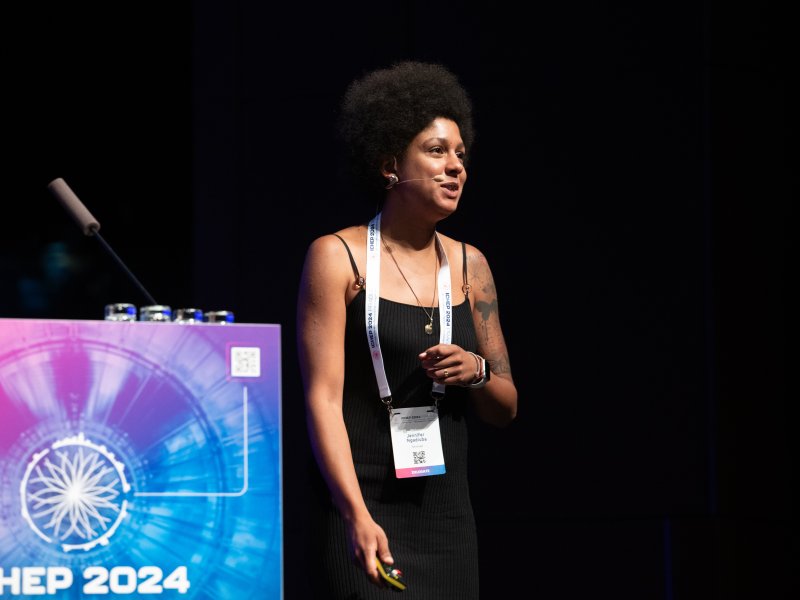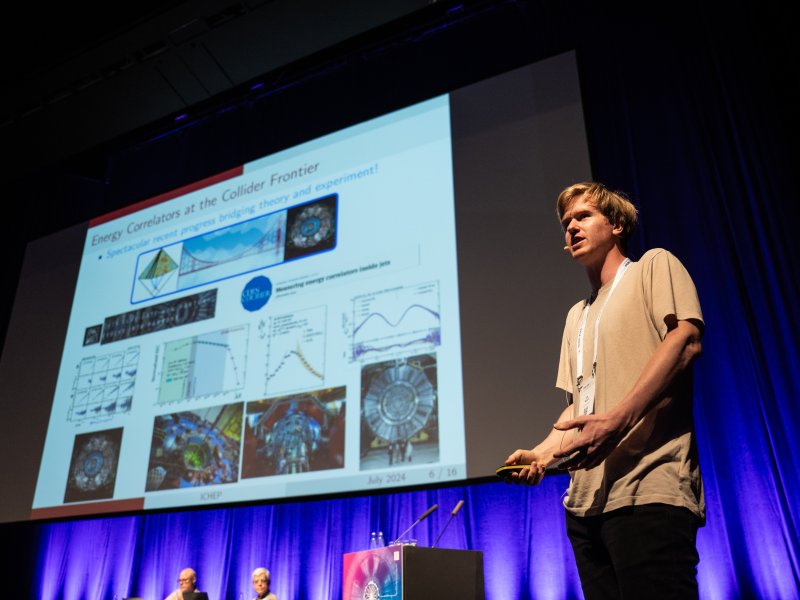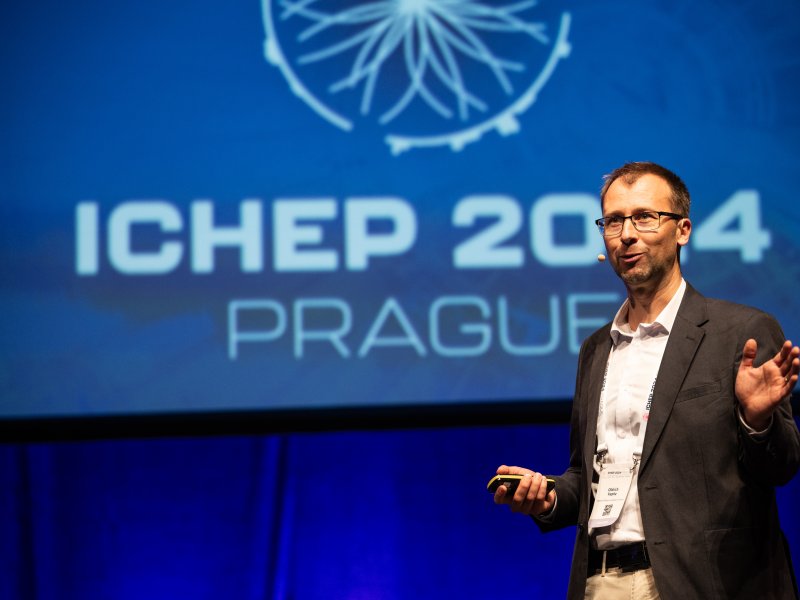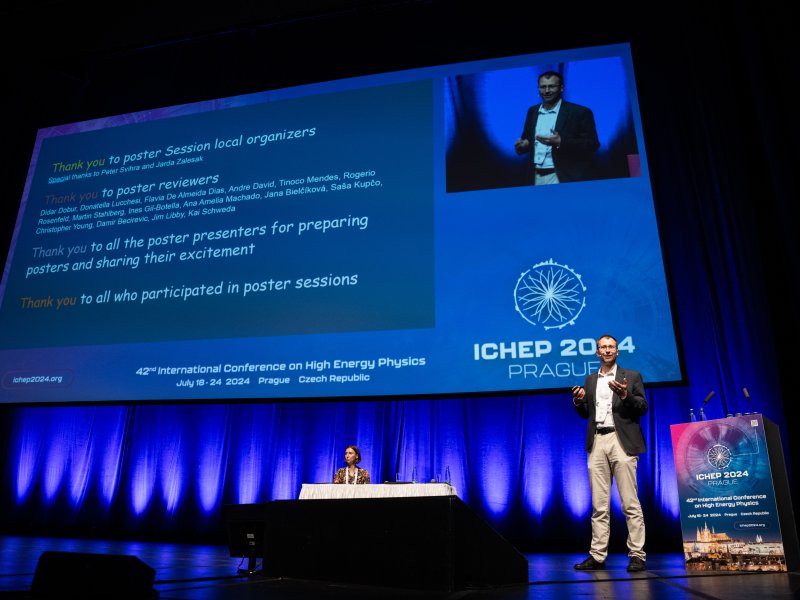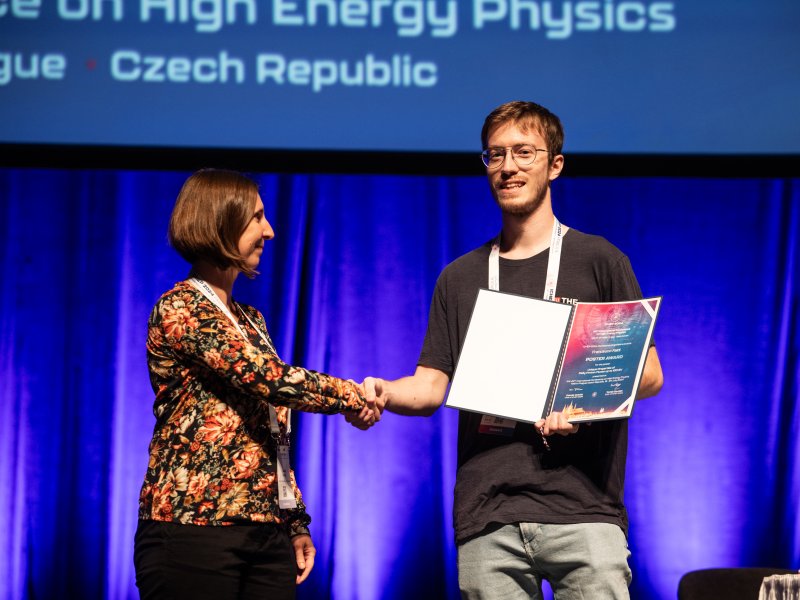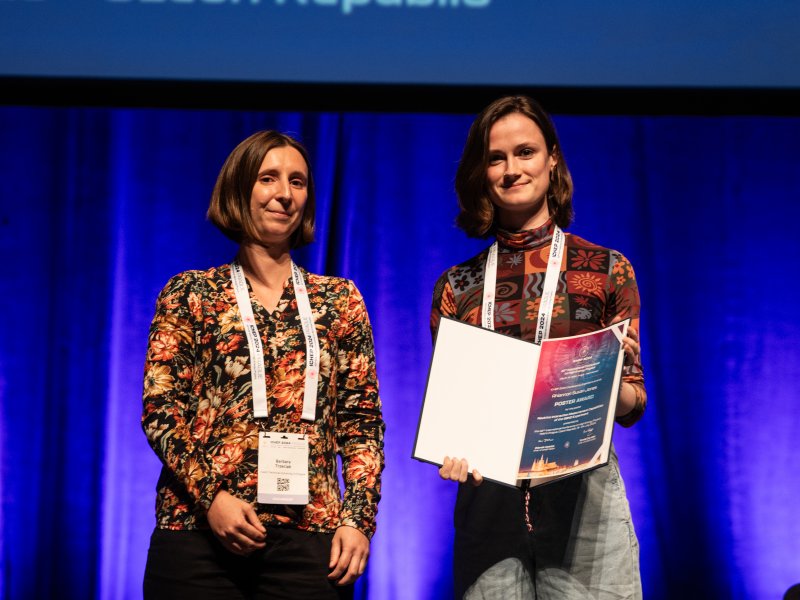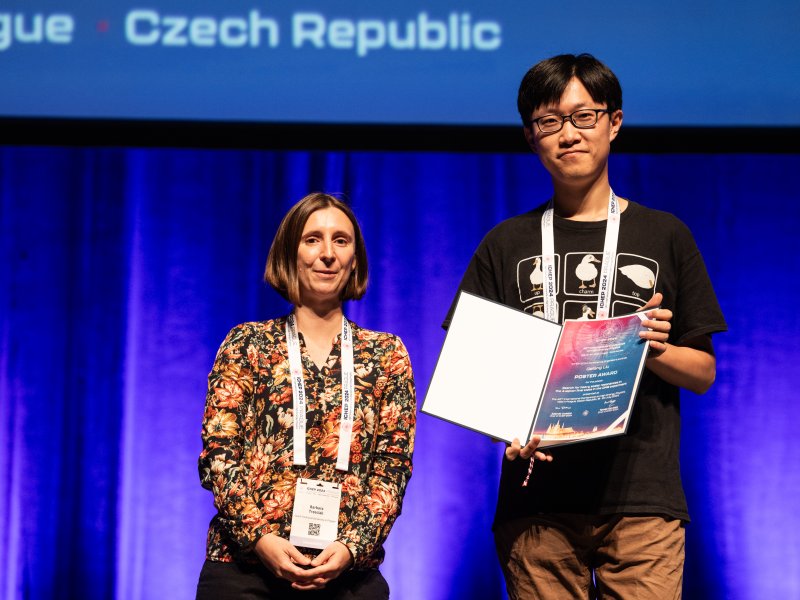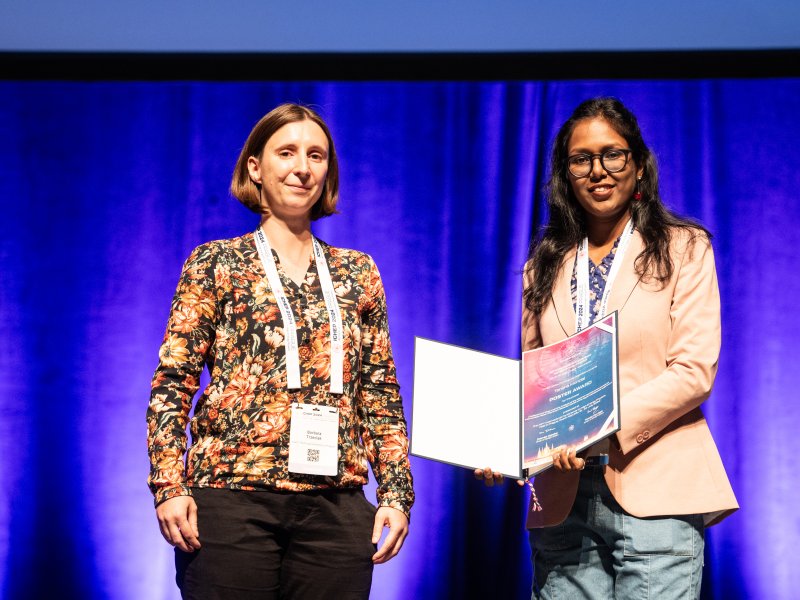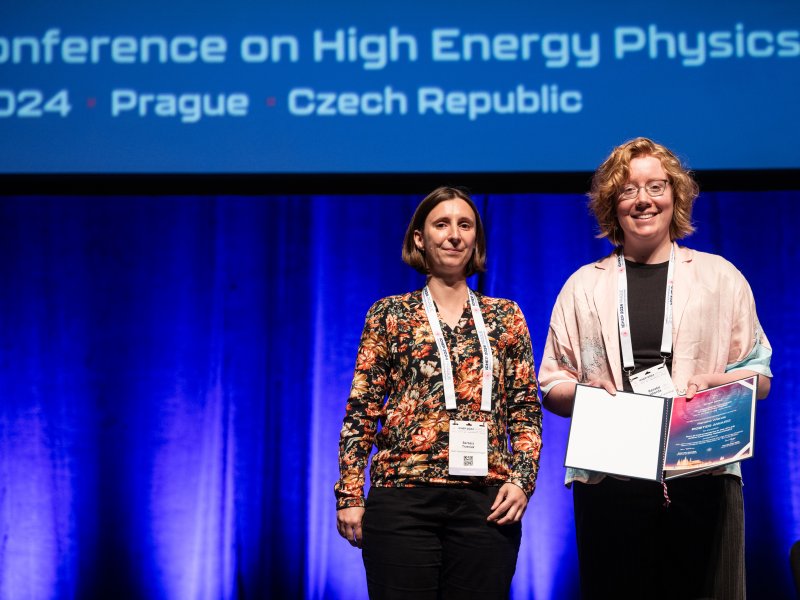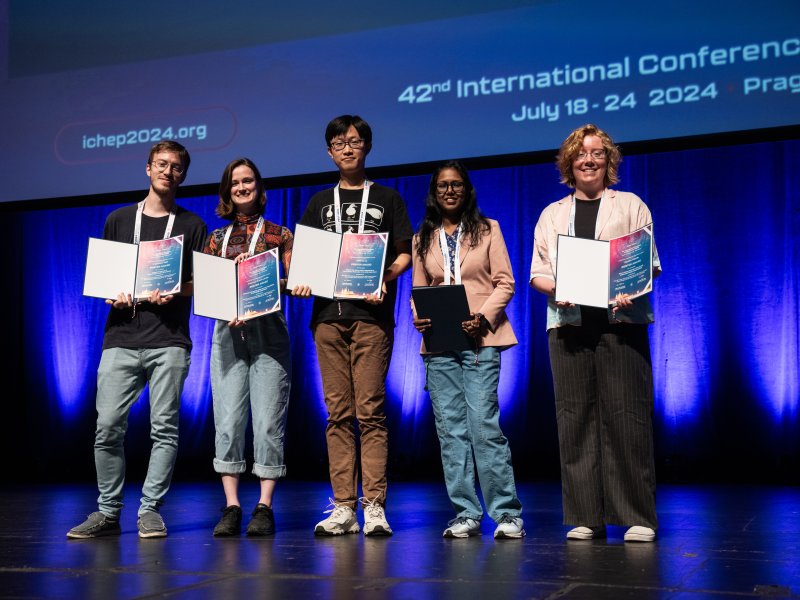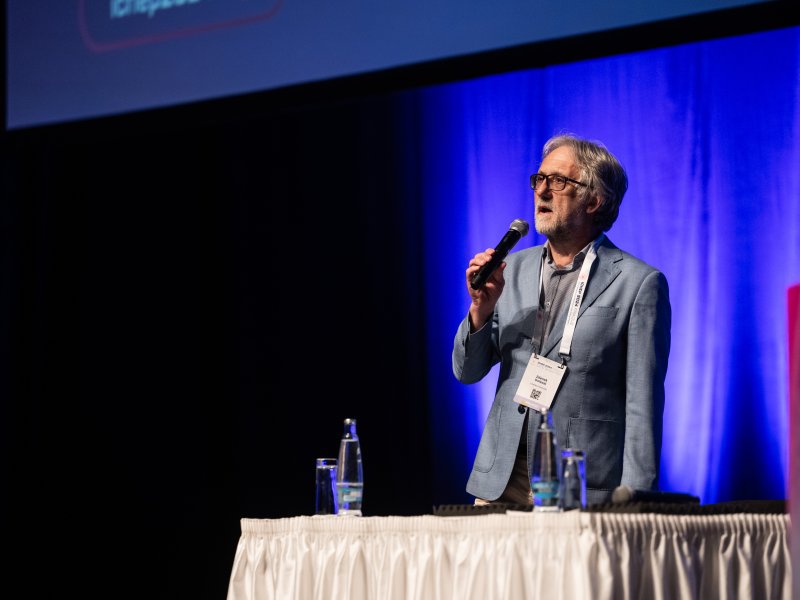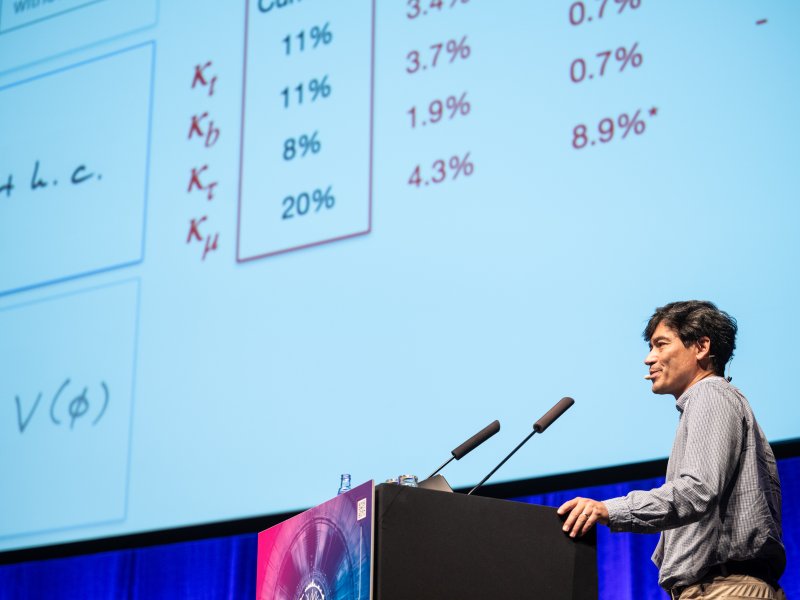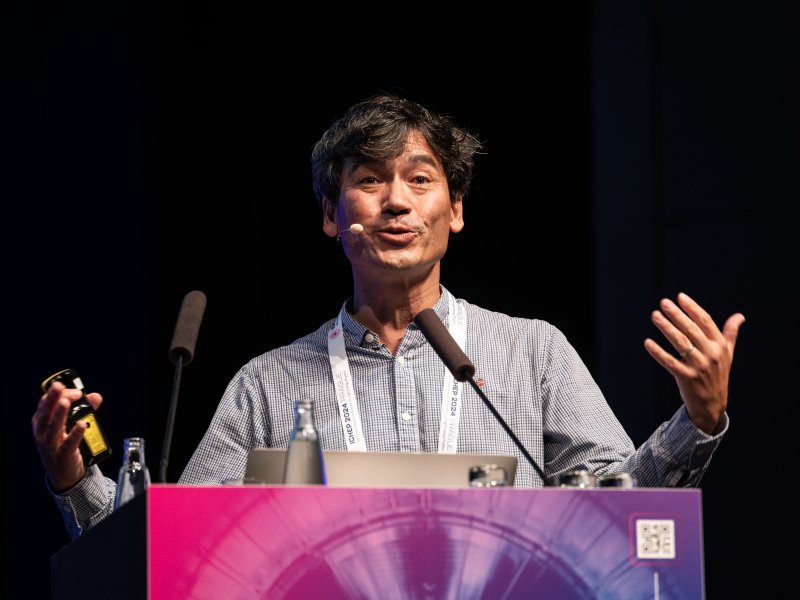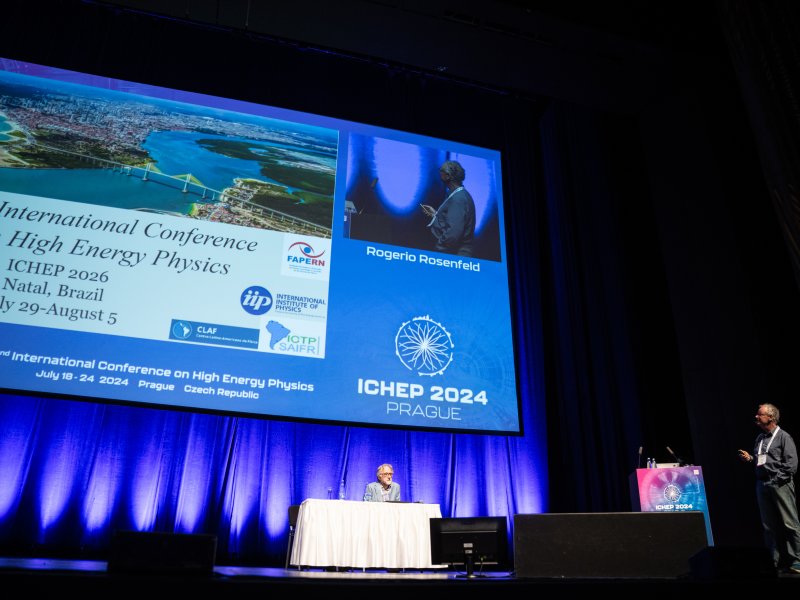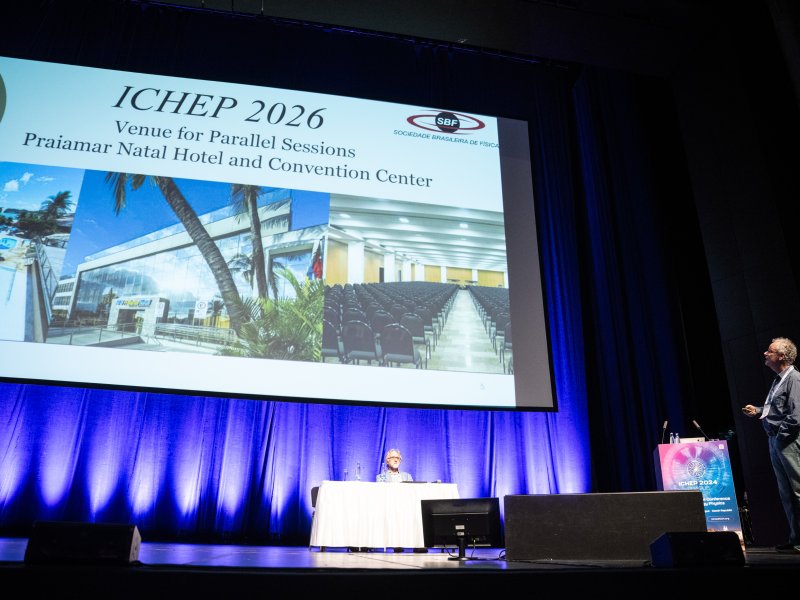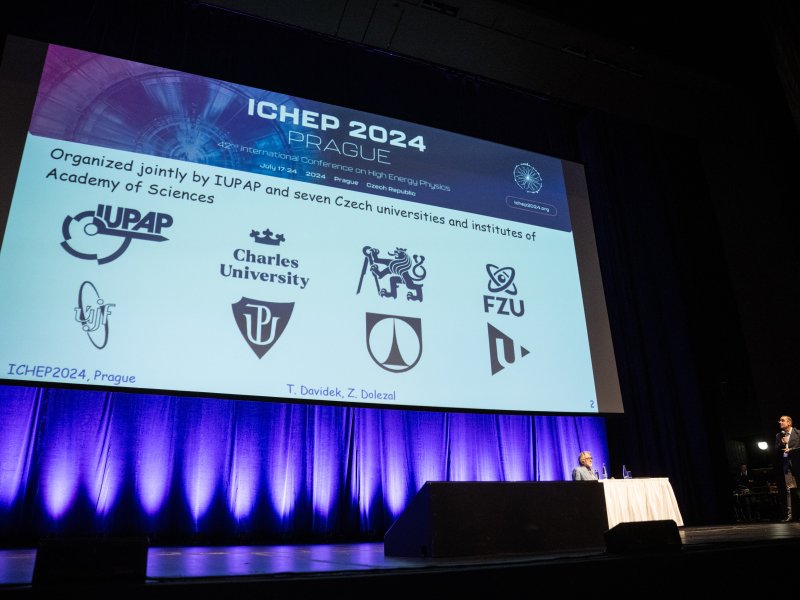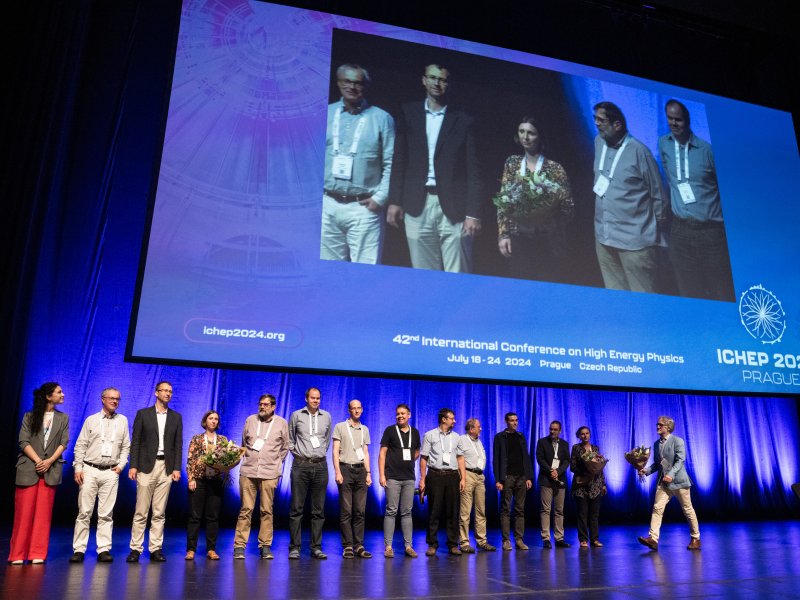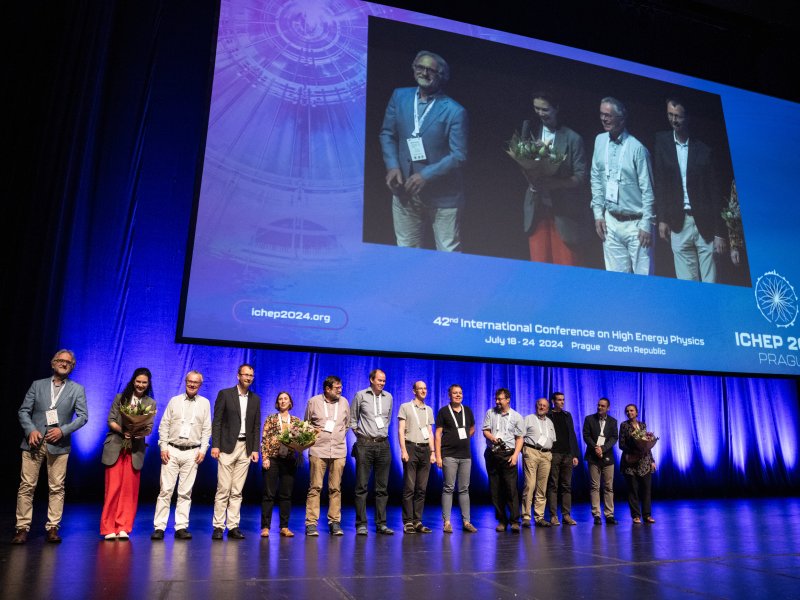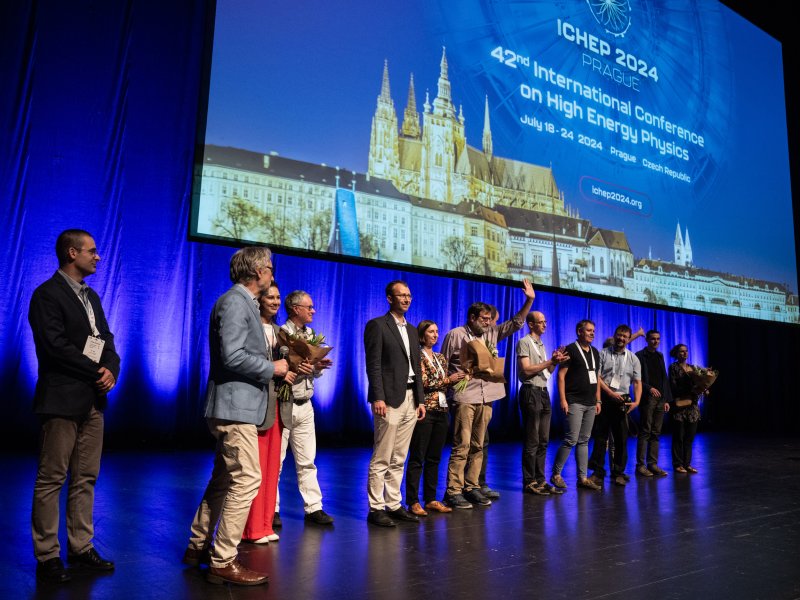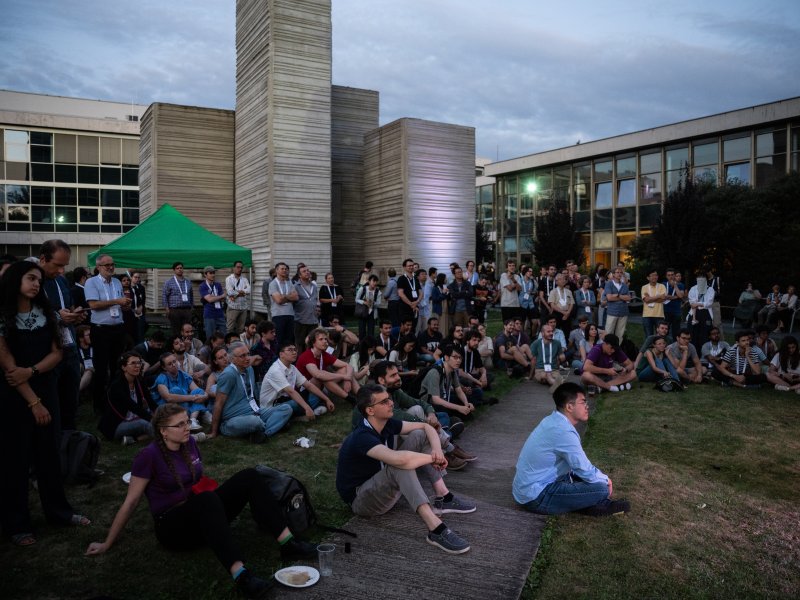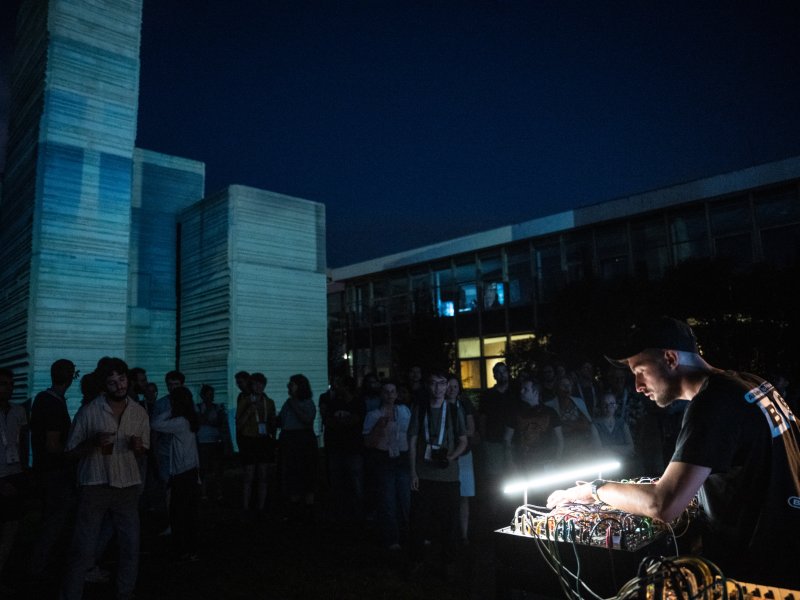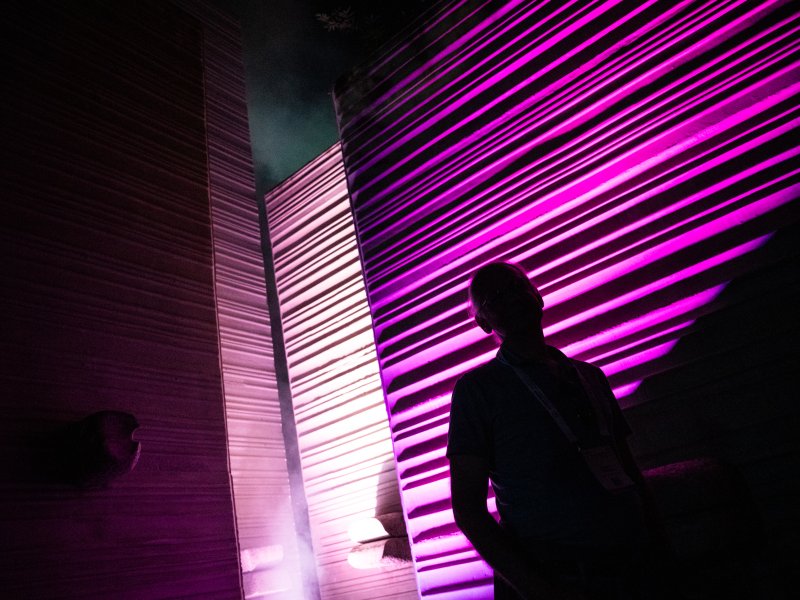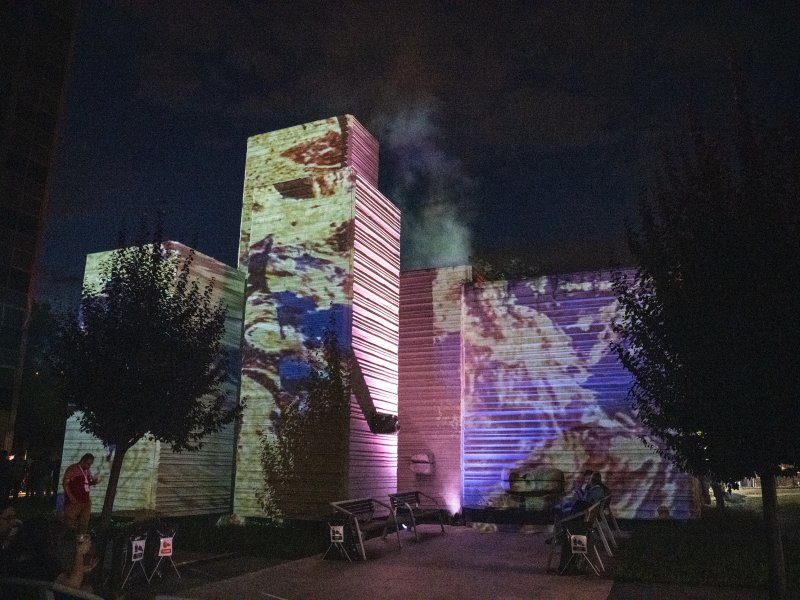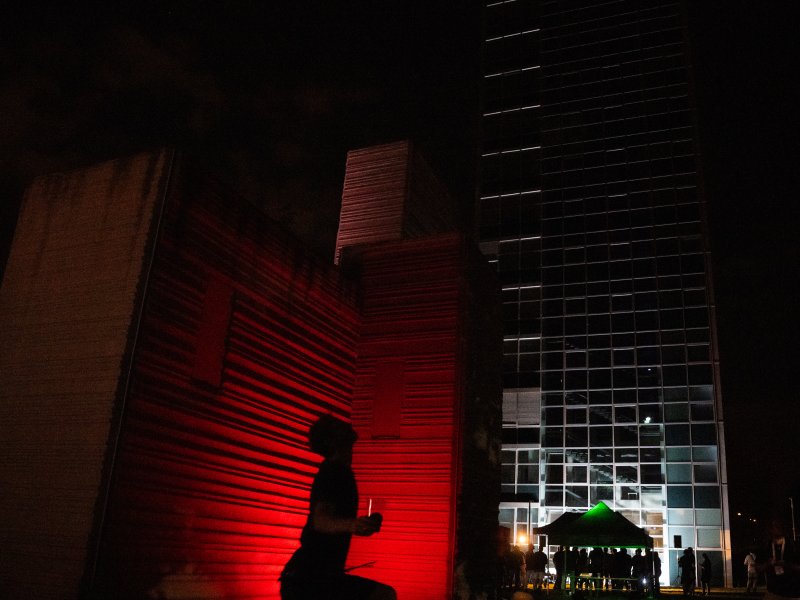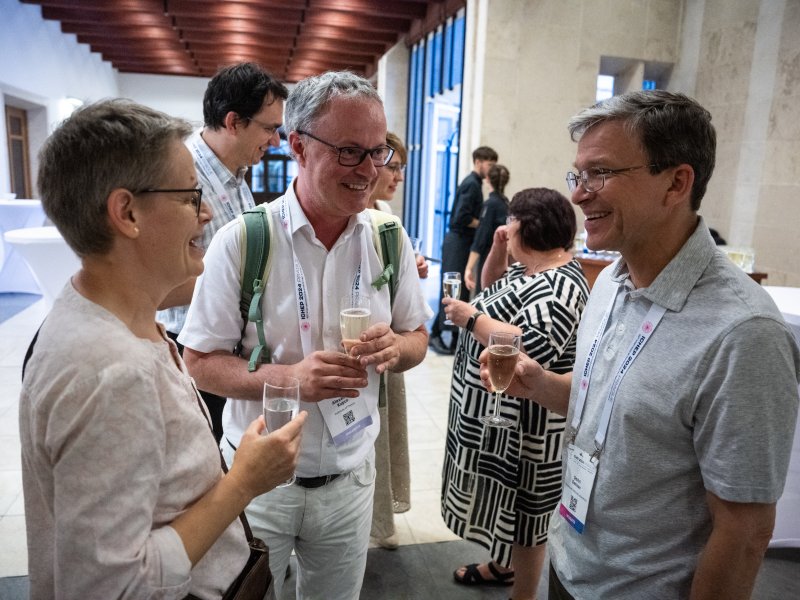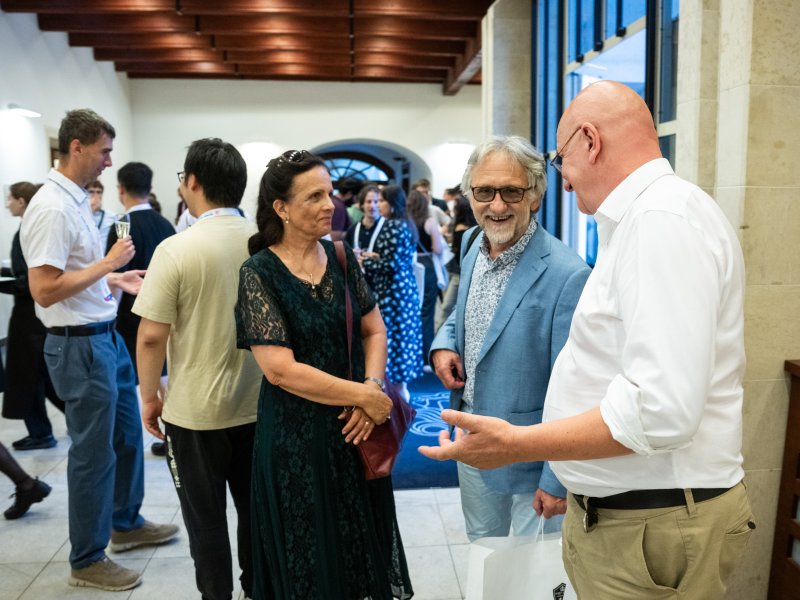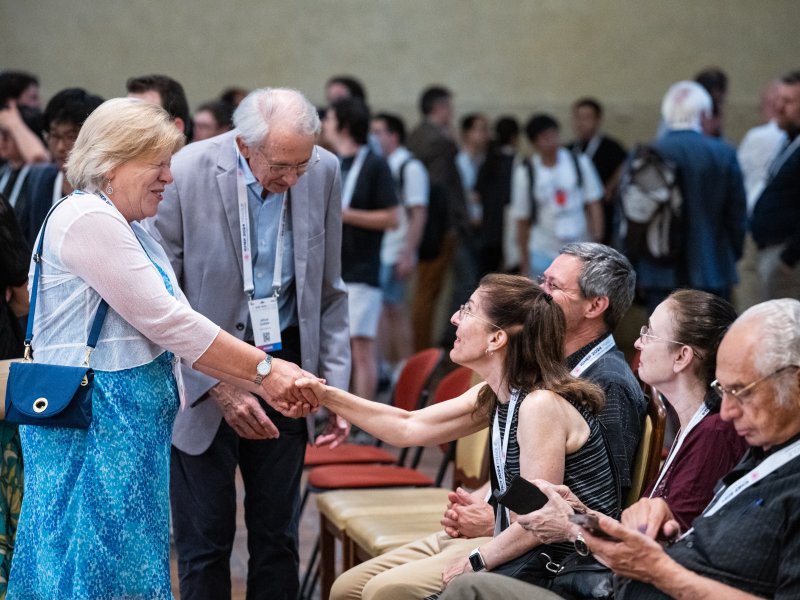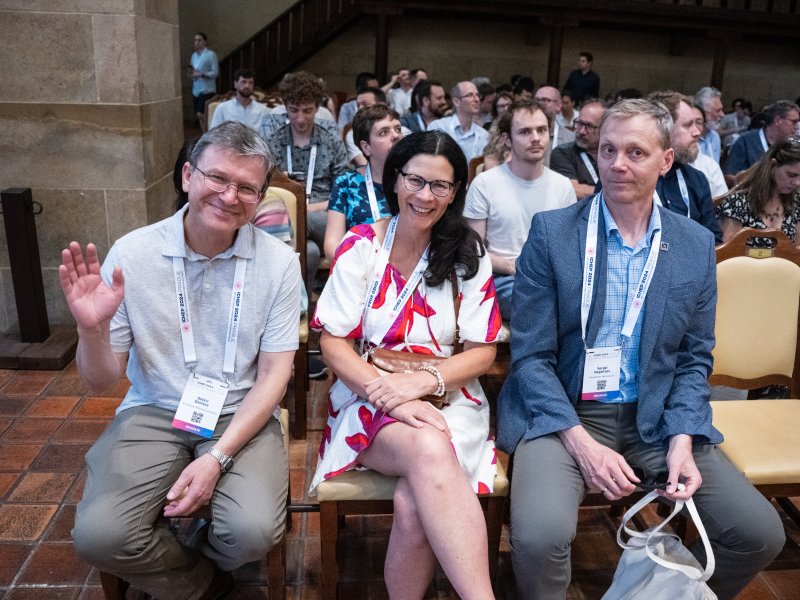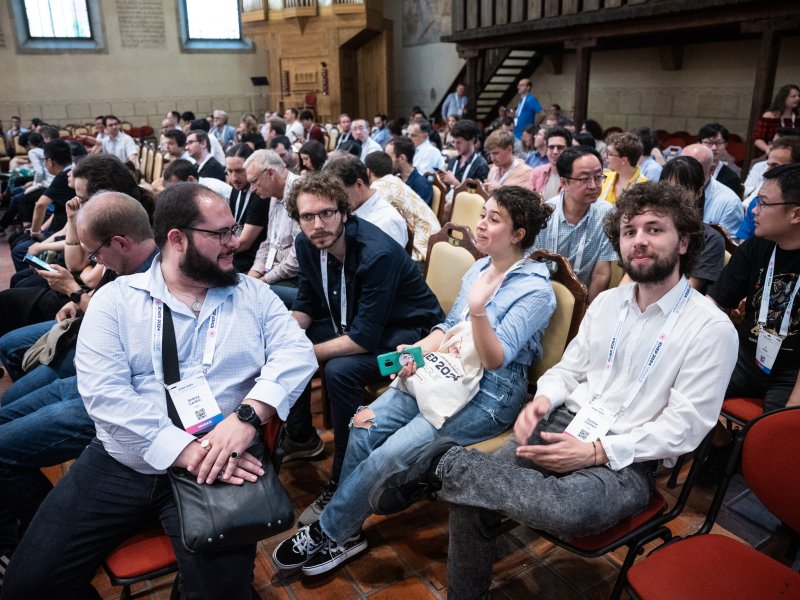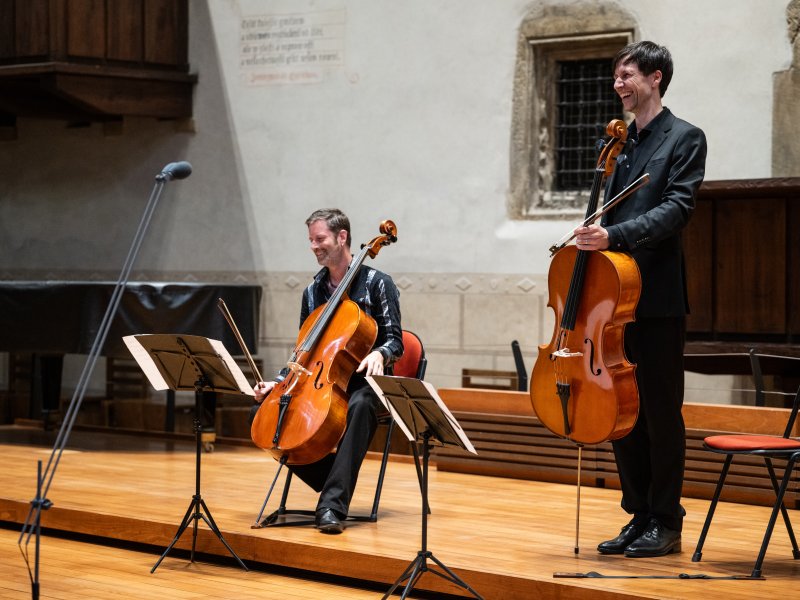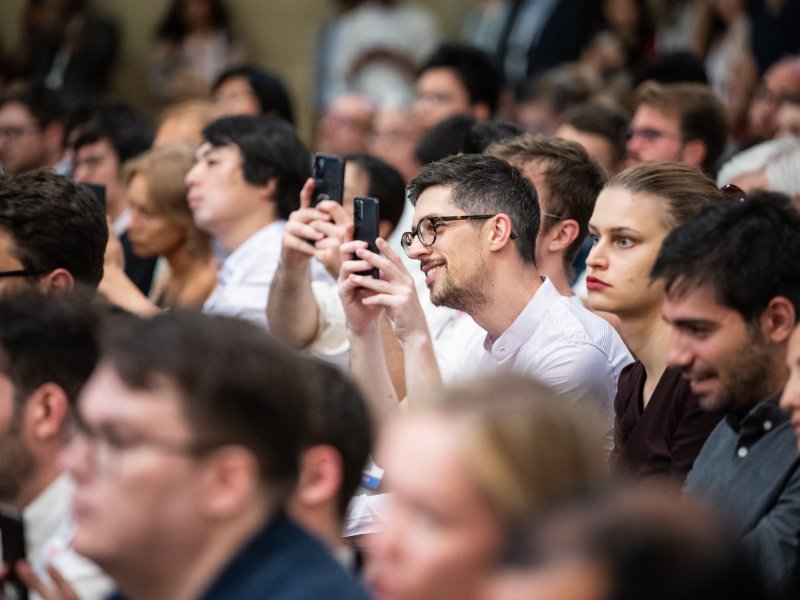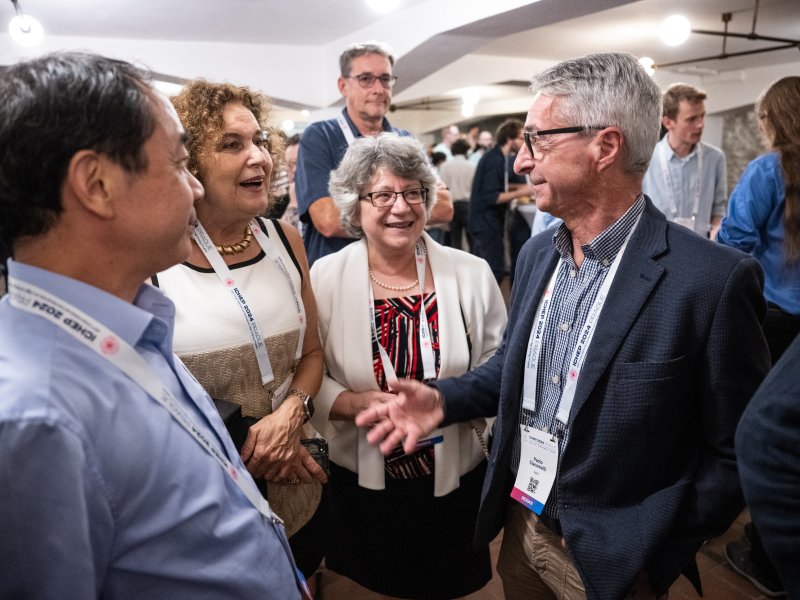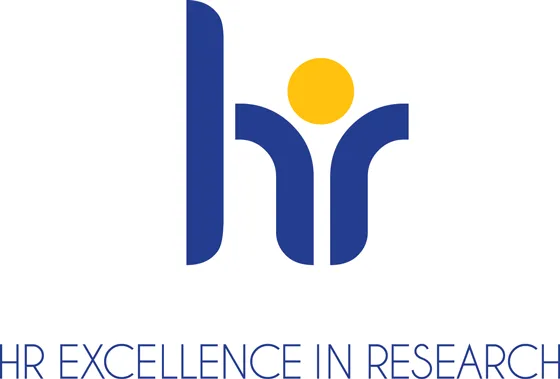Looking Back at ICHEP 2024

Prague recently hosted the 42nd year of the ICHEP conference, a biennial event showcasing the most significant global advancements in particle physics since the 1950s.
“The International Conference on High Energy Physics (ICHEP) 2024 is the largest conference in this field. It brought 1,400 participants from 55 countries all around the world to Prague, who attended about thousand lectures,” summarizes Zdeněk Doležal from the Institute of Particle and Nuclear Physics at Charles University, who co-chaired the recent year alongside Tomáš Davídek.
The week-long conference (July 18–24) offered a rich scientific program, social activities, and public events, including those held during the Colours of Ostrava festival and a unique exhibition at the Prague Congress Centre.
“The conference was organized by representatives from five Czech universities and two institutes of the Academy of Sciences. Several dozen of our students served as assistants, gaining invaluable experience,” adds Doležal.
Three panel discussions attracted significant attention. Two focused on the future of particle physics and its societal benefits, while the third emphasized the importance of education and science popularization.
A Future with the Best
The “Future of Particle Physics” panel discussions brought together leaders from the world’s most prominent particle physics laboratories as well as representatives from Czech political and academic spheres.
CERN, the most renowned international laboratory, was represented by its director general Fabiola Gianotti. Other national research institutions were also represented in the discussion, for example Fermilab (USA) by director Lia Merminga, KEK (Japan) by director Shoji Asai, BNL (USA) by deputy director Dmitri Denisov, and IHEP (China) by director Yifang Wang participating in the discussion.
The political representants were Pavel Doleček, the Deputy Minister for Science, Research, and Innovation and Marek Vyšinka, Head of the Department for Research Infrastructures. The academic sector was represented by Martin Procházka, Rector of Palacký University Olomouc, Ladislav Krištoufek, Vice-Rector for Research at Charles University, and Jan Řídký, Vice-President of the Czech Academy of Sciences.
“Meeting and sharing experiences are immensely valuable, and it iscrucial to dedicate time to these ‚soft skills.‘ The full lecture hall here today is proof of that. I would like to take this opportunity to invite your excellent scientists to join us. CERN’s laboratories are open to all European countries. Collaborating on fundamental scientific research in particle physics is a shared goal for all of us,” concluded Fabiola Gianotti.
This September, CERN will celebrate its 70th anniversary, marked by groundbreaking discoveries, Nobel Prizes (such as for the W and Z particles in the 1980s or the Higgs boson twelve years ago), and significant technological advancements for various applications. Currently, CERN operates the world’s largest particle accelerator, the LHC, enabling the study of matter under conditions akin to those of the early universe through particle and nuclear collisions.
Understanding Ensures Success
The global particle physics community is well aware that its work is multidimensional, and the continued success of high-energy physics (HEP) cannot be separated from societal or ethical considerations, as well as from effective communication and outreach.
The panel discussion on this topic, “Communication and Outreach – by all of us – is critical for the future of HEP,” brought many perspectives on the role of science in general and specifically on the physical sciences. The term “outreach” encompasses more activities than typically implied by “popularization.” It includes all the ways in which the scientific community opens up and engages with society. The panel featured experts who have been developing scientific outreach and communication at the highest levels for years. Matthew Chalmers, a physicist and editor of the CERN Courier; Sarah Demers, a professor of physics at Yale University involved in a wide range of promotional activities, and Spencer Kelly, one of the most experienced science journalists at the BBC, shared their insights. They were joined by renowned physicist and science communicator Paris Sphicas, who is also active in the IPPOG communication network, and by well-known television journalist and presenter Daniel Stach.
The discussion was moderated by experienced science communicators Connie Potter and physicist Dave Barney.
With a thousand conference lectures, a poster section, and a variety of other programs, including social events, it is impossible to summarize everything briefly. The presented results primarily refined existing knowledge, explored phenomena “beyond the standard model,” hinted at new promising research directions and search for new particles, such as dark matter particles. Speakers introduced many unique findings, discussed the future of particle physics after the current LHC project, and emphasized the importance of personal interactions among so many representatives of the particle physics community.
ICHEP had already been held “in Prague” in 2020, but it took place online due to COVID-19 restrictions. It is gratifying that Czech particle physicists had the opportunity to host the event again, this time in person. This confirms that this field of research in the Czech Republic is of a high standard and is an integral part of global activities.


